Judicial Authority: How to Overcome the Crisis? The UBA held the XII Judicial Forum
Last week, on November 16, the Ukrainian Bar Association, together with the USAID Justice for All Program, held one of the largest and most influential events of the year in the Ukrainian legal market — the XII Judicial Forum " Judicial Authority: How to Overcome the Crisis?".
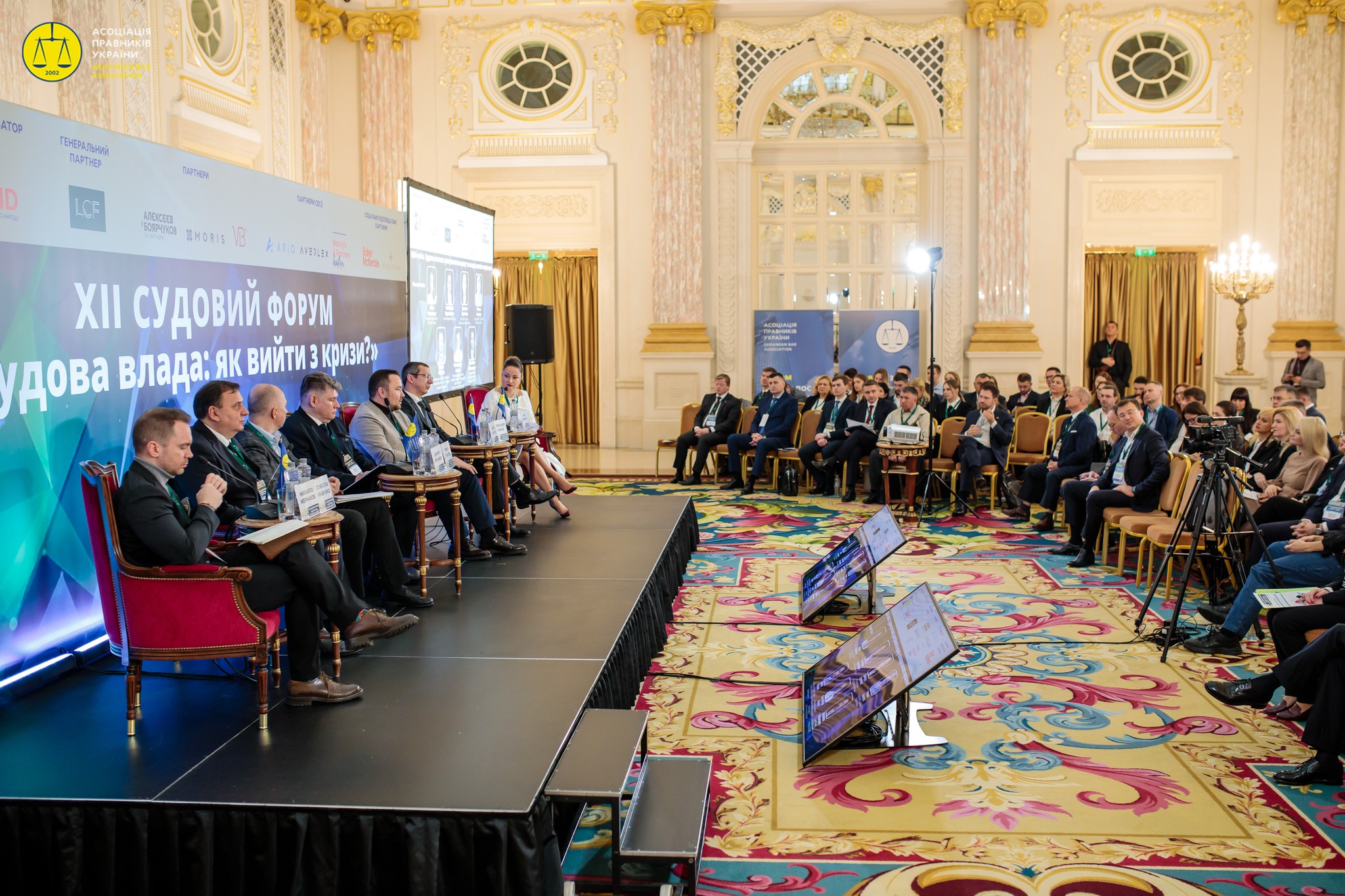
The participants of the event had an opportunity to discuss the most important issues related to justice and the judiciary. Among speakers and guests of the forum were representatives of the Supreme Court and other levels of the judicial system, heads of higher government agencies, prosecutors, leading lawyers, experts, diplomats, academics and public figures.
The event was opened by welcoming remarks by Stanislav Kravchenko, Chief Justice of the Supreme Court, and Mykola Stetsenko, President of the Ukrainian Bar Association and Managing Partner of AVELLUM.
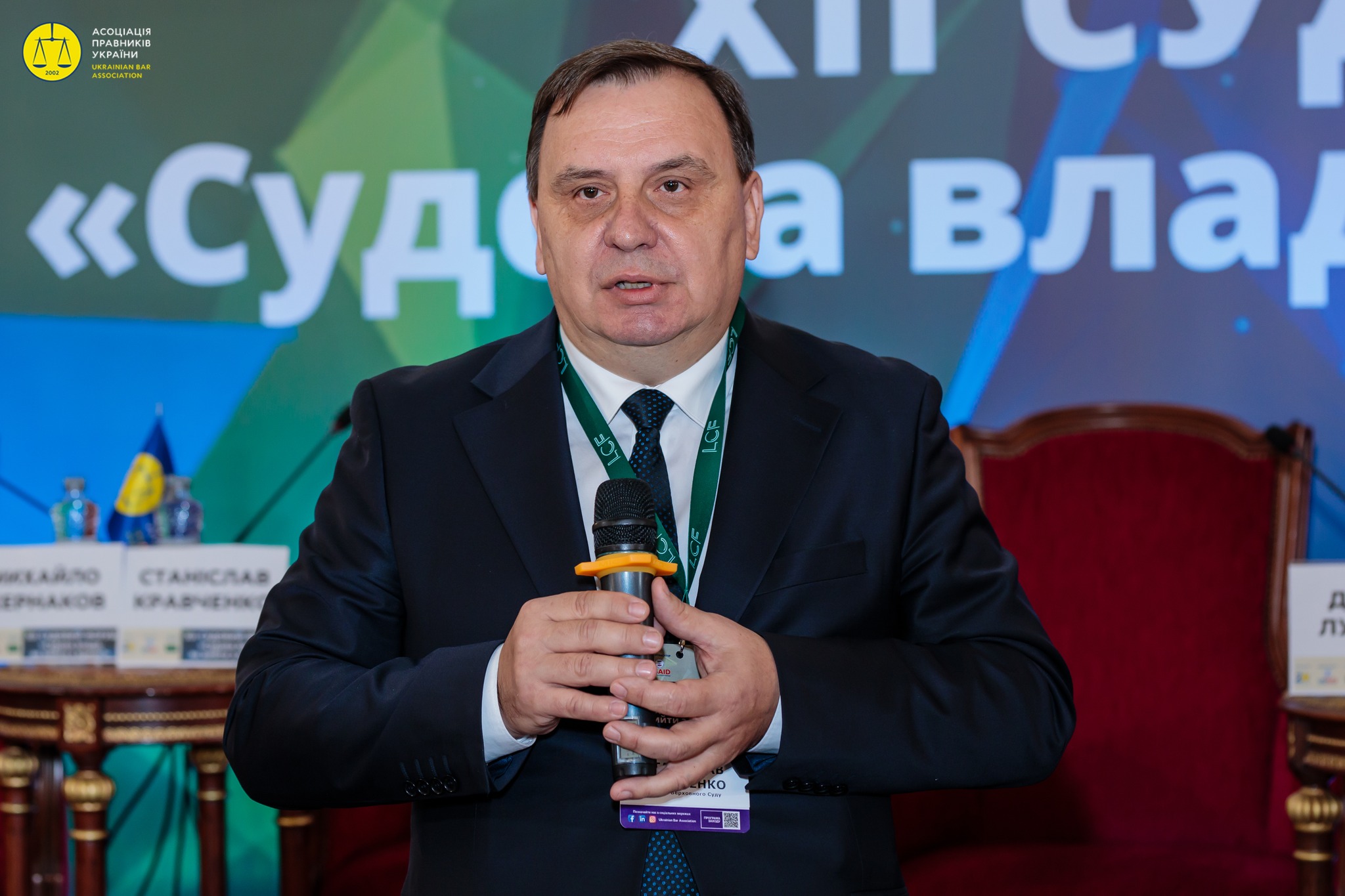
Stanislav Kravchenko thanked the UBA for its expert assistance in solving the problems of the justice system and providing such platforms for discussions as the Judicial Forum.
The Chief Justice touched upon the challenges faced by the judiciary today and named personnel issues in the courts as one of the top priorities.
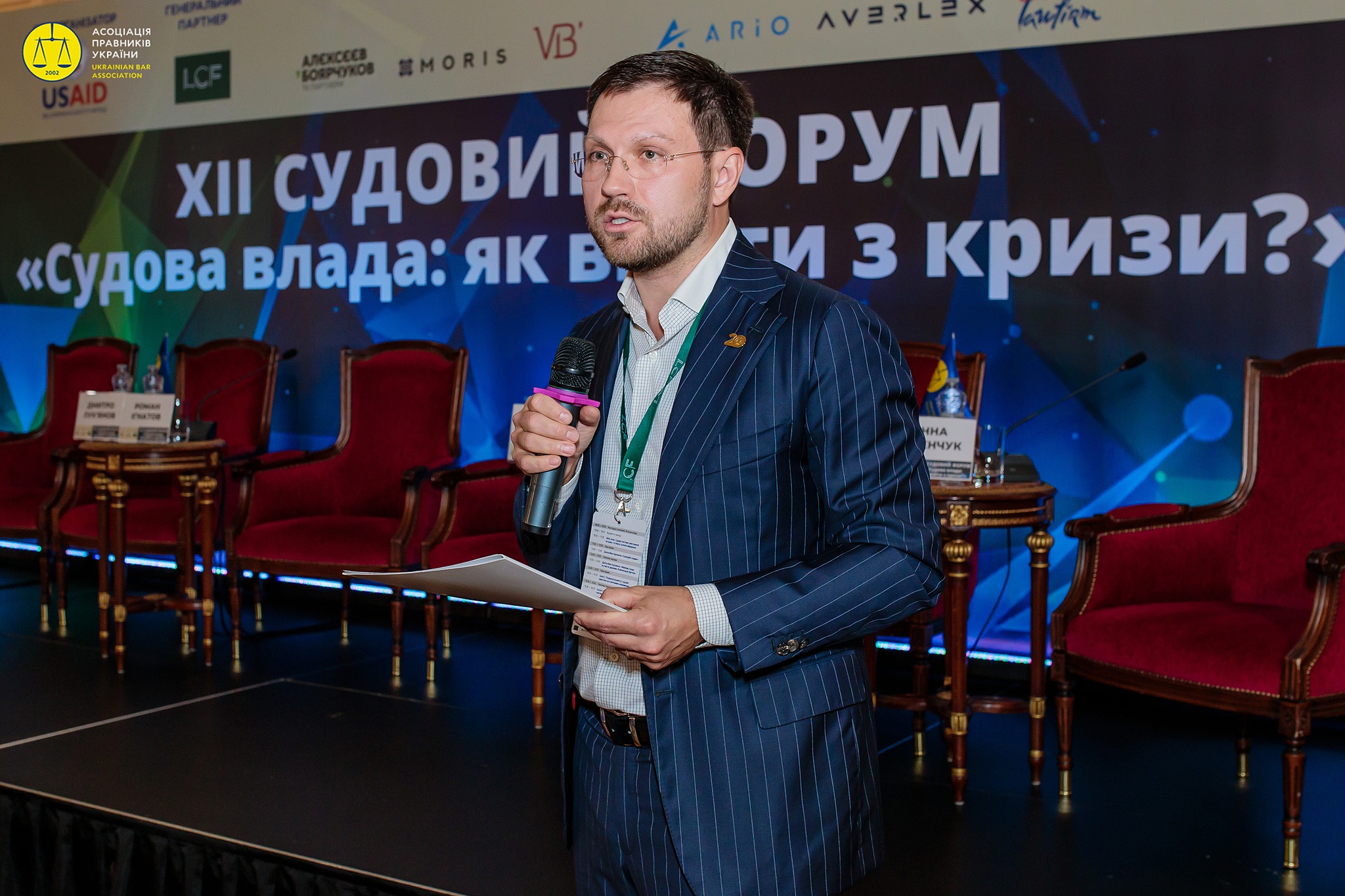
Mykola Stetsenko expressed his hope that the XII Judicial Forum will become a platform for fruitful discussions and that new ideas and solutions will emerge from the event that will help overcome challenges in the judicial system.
The first panel of the forum was the Q&A session "Judicial System: Responding to the Crisis and Finding Solutions". It was moderated by Anna Ogrenchuk, Program Coordinator of the Forum, Managing Partner of LCF Law Group. The session focused on the following issues:
- Necessary steps to overcome the crisis in the judicial system
- Ukraine's tasks in reforming the judicial system on the way to European and Euro-Atlantic integration
- Improving the procedure for selecting judges — a step towards reforming the Constitutional Court of Ukraine
- New concepts for reforming the judiciary: searching for answers to key questions
- Competitions for vacant positions of judges announced: challenges and necessary further steps to address the issue of staff shortage
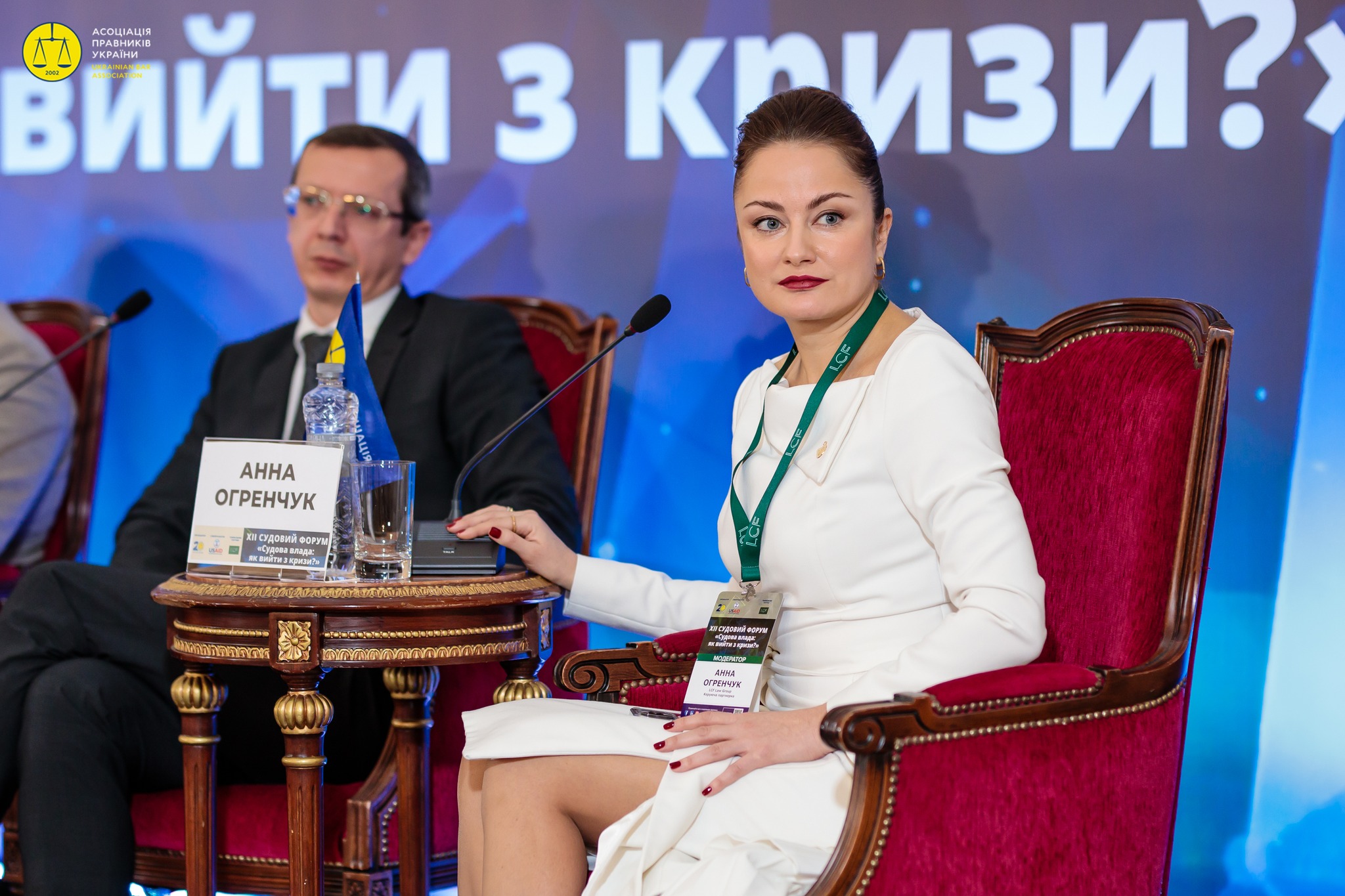
Anna Ogrenchuk emphasized that the recent recommendation of the European Commission to start negotiations with Ukraine on joining the European Union imposes a great responsibility, in particular, on the legal profession. According to her, lawyers need to make efforts to build an independent judiciary and an independent bar so that justice eventually meets the standards of the Council of Europe.
Roman Ihnatov, Head of the High Qualification Commission of Judges of Ukraine — Head of the First Chamber, emphasized that the HQCJU's task is to select highly professional and honest judges. He also noted that the Commission, in particular, is tasked with completing the initiated qualification assessment procedures for about 2000 judges and completing the initiated competitions for the positions of first instance and appellate judges.
According to the Head of the HQCJ, the issue of competition to the courts of administrative jurisdiction remains relevant. In particular, it concerns Kyiv Regional District Administrative Court, which is currently overloaded with cases from the liquidated District Administrative Court of the City of Kyiv.
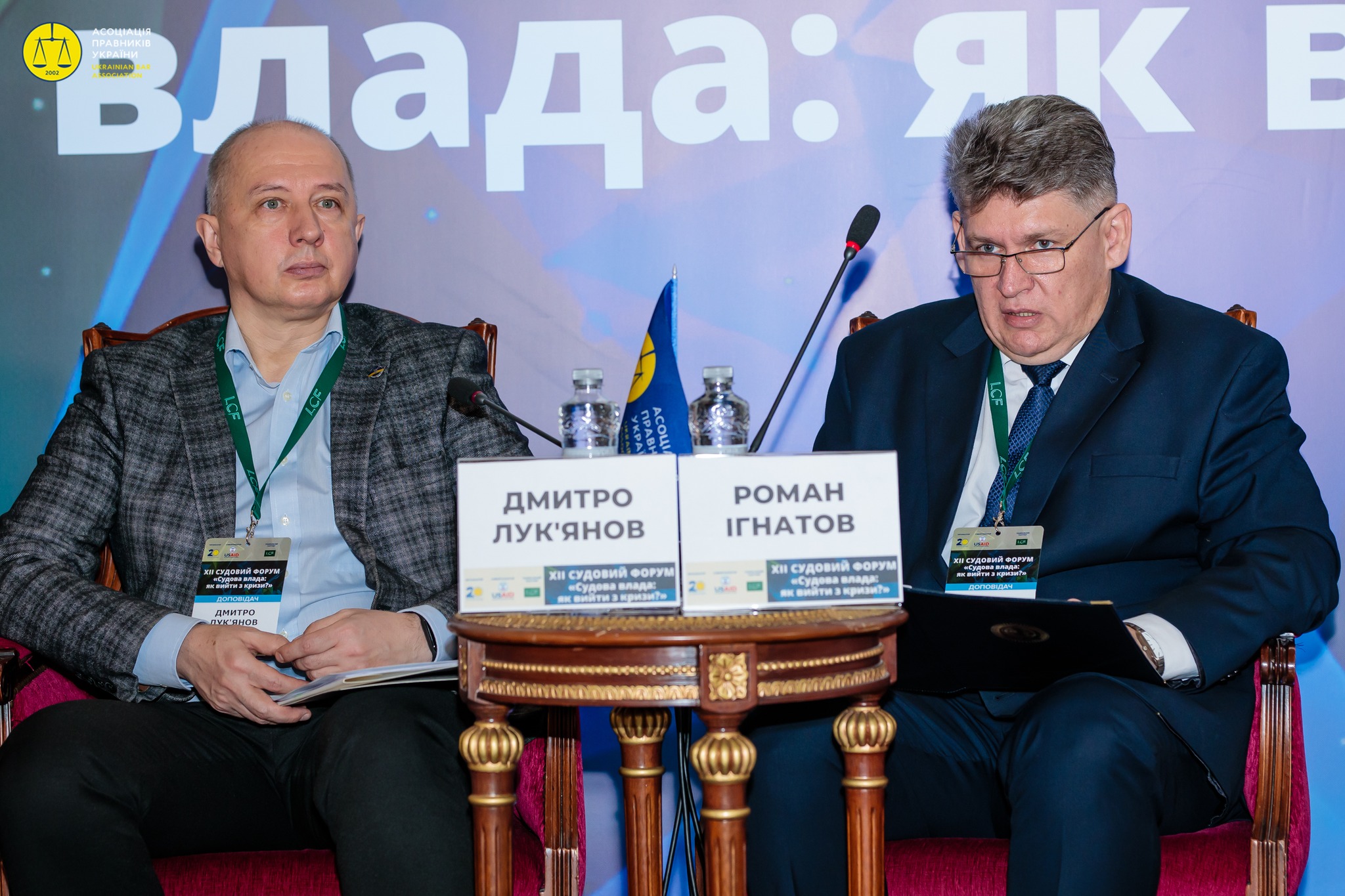
Roman Ihnatov also reminded that on December 15, 2023, the application process for the positions of judges of the appellate courts will begin. He also emphasized that the lack of personnel in the appellate instance is a big problem.
Among the achievements of the HQCJ, Mr. Ihnatov mentioned the establishment of contacts with international partners — in particular, a number of memorandums were signed — and updating of the Commission's regulations: adoption of a new regulation, etc.
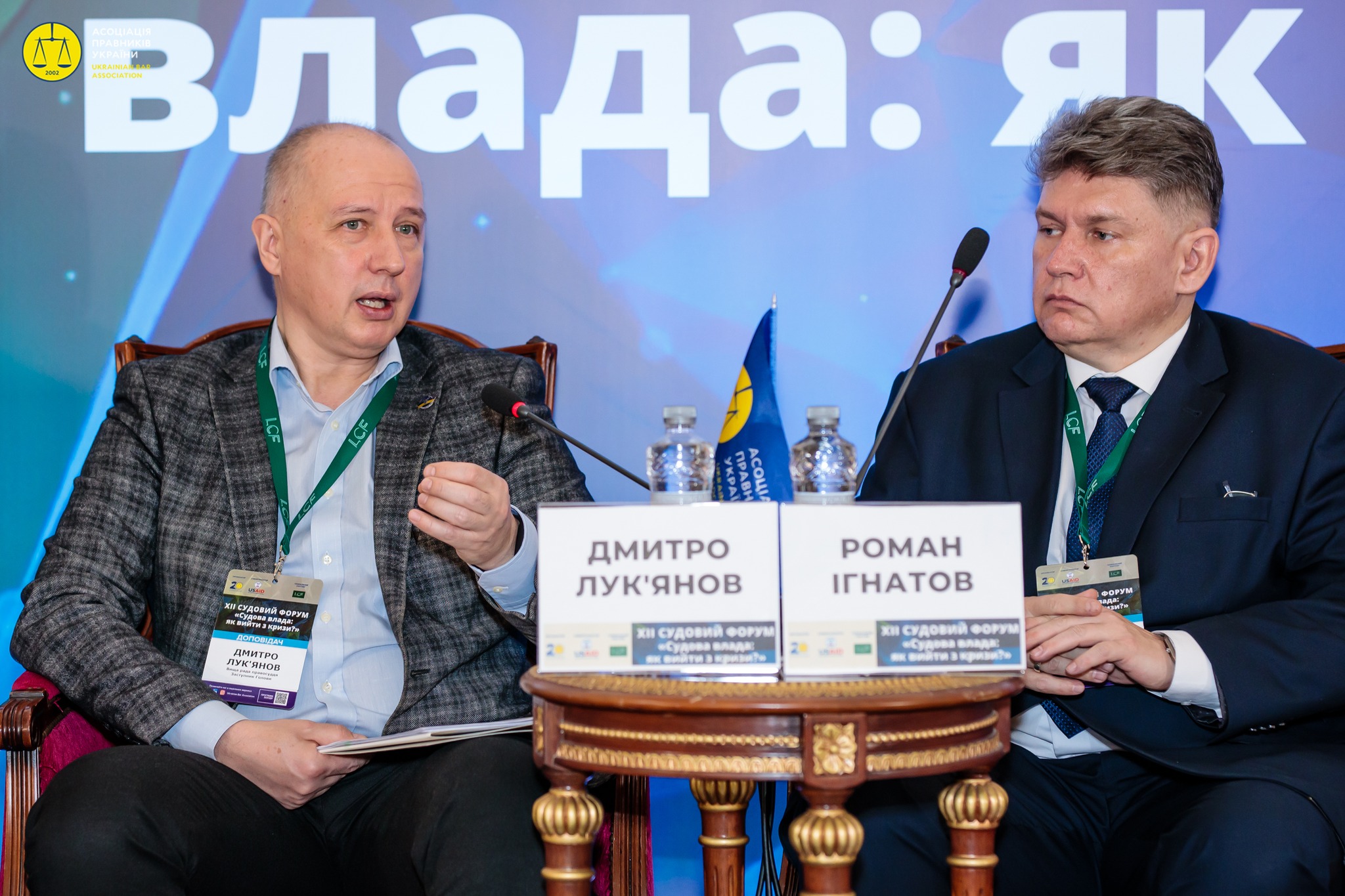
Dmytro Lukianov, Deputy Head of the High Council of Justice, noted that on November 1, 2023, the HCJ finally resumed all its functions. In particular, the Council is currently considering 13,000 complaints against judges that have accumulated in recent years for a number of reasons, and they are distributed daily. Mr. Lukianov also spoke about the launch of the HCJ's disciplinary inspectors service.
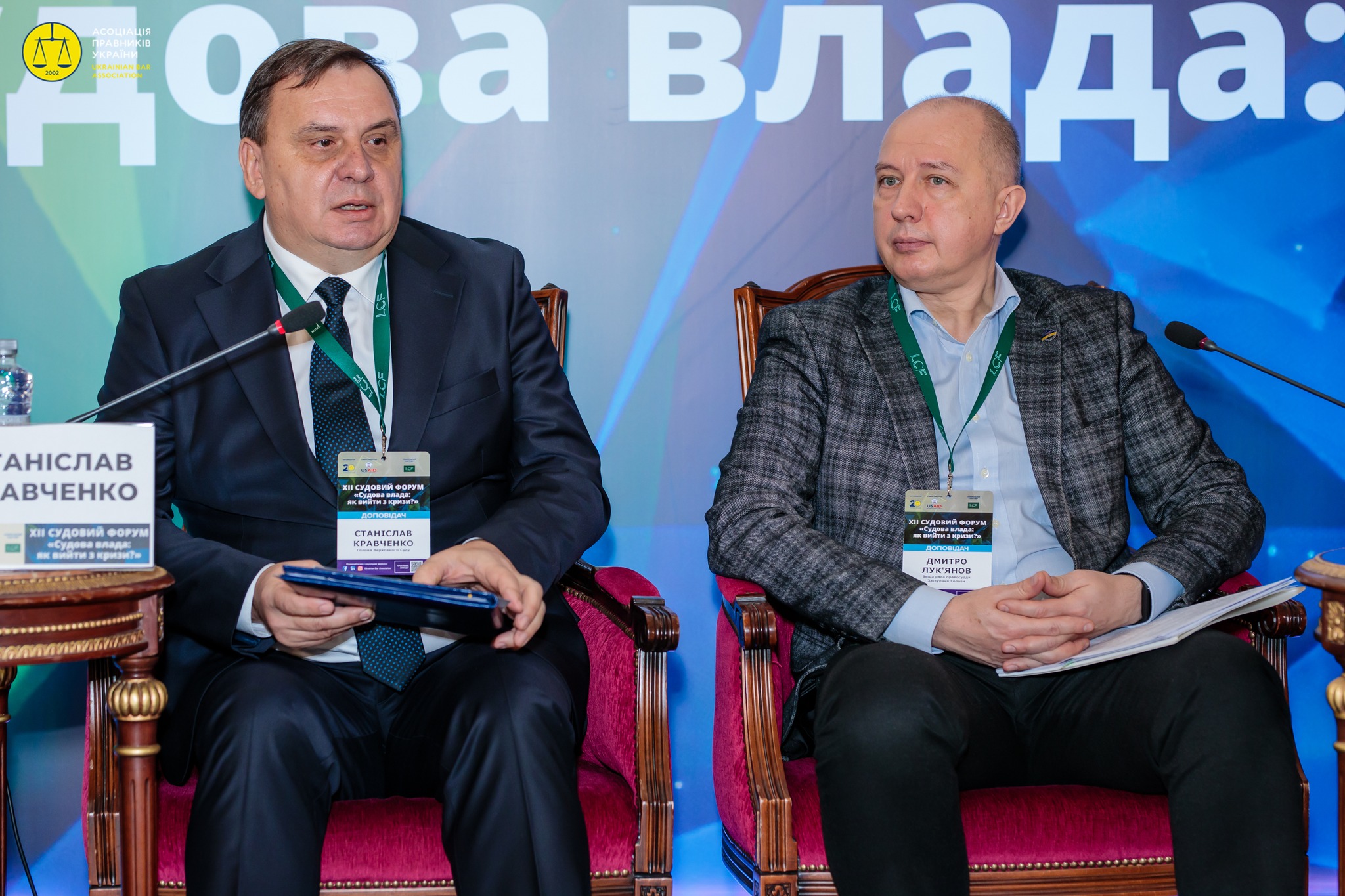
Stanislav Kravchenko, Chief Justice of the Supreme Court, noted that the shortage of judges of the Supreme Court is currently 25%. Among other things, he noted that there is currently no mechanism to ensure the unity of practice, particularly in criminal jurisdiction, and that legislators’ help is needed.
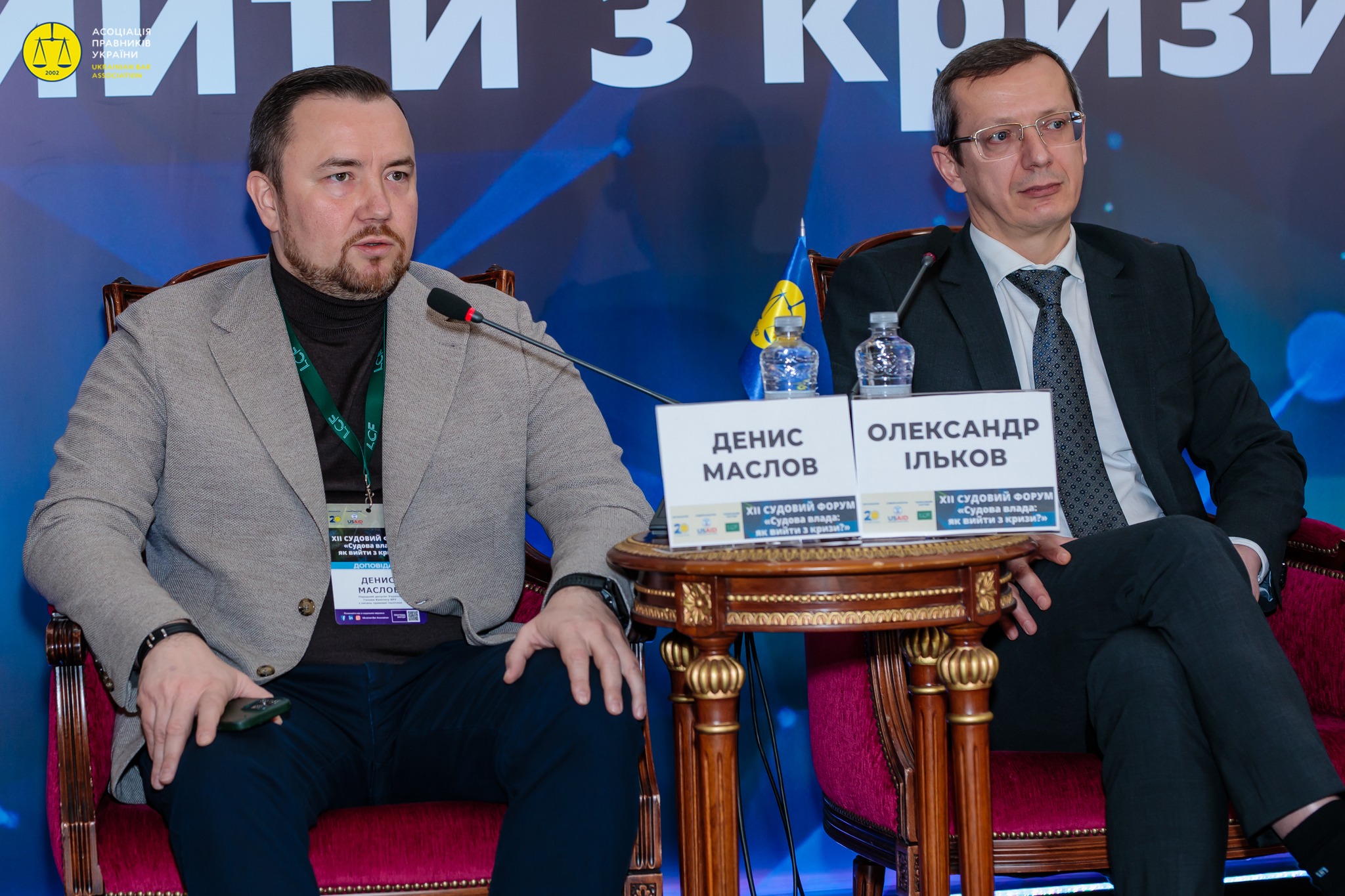
Denys Maslov, Member of Parliament of Ukraine, Chairman of the Verkhovna Rada Committee on Legal Policy, spoke about current legislative initiatives aimed at reforming the judicial system on the path to European and Euro-Atlantic integration. In particular, he emphasized two key points: the adoption of the law amending the procedure for selecting judges and the importance of legal education. According to Mr. Maslov, the latter is and will be one of the priorities of the Committee he heads.
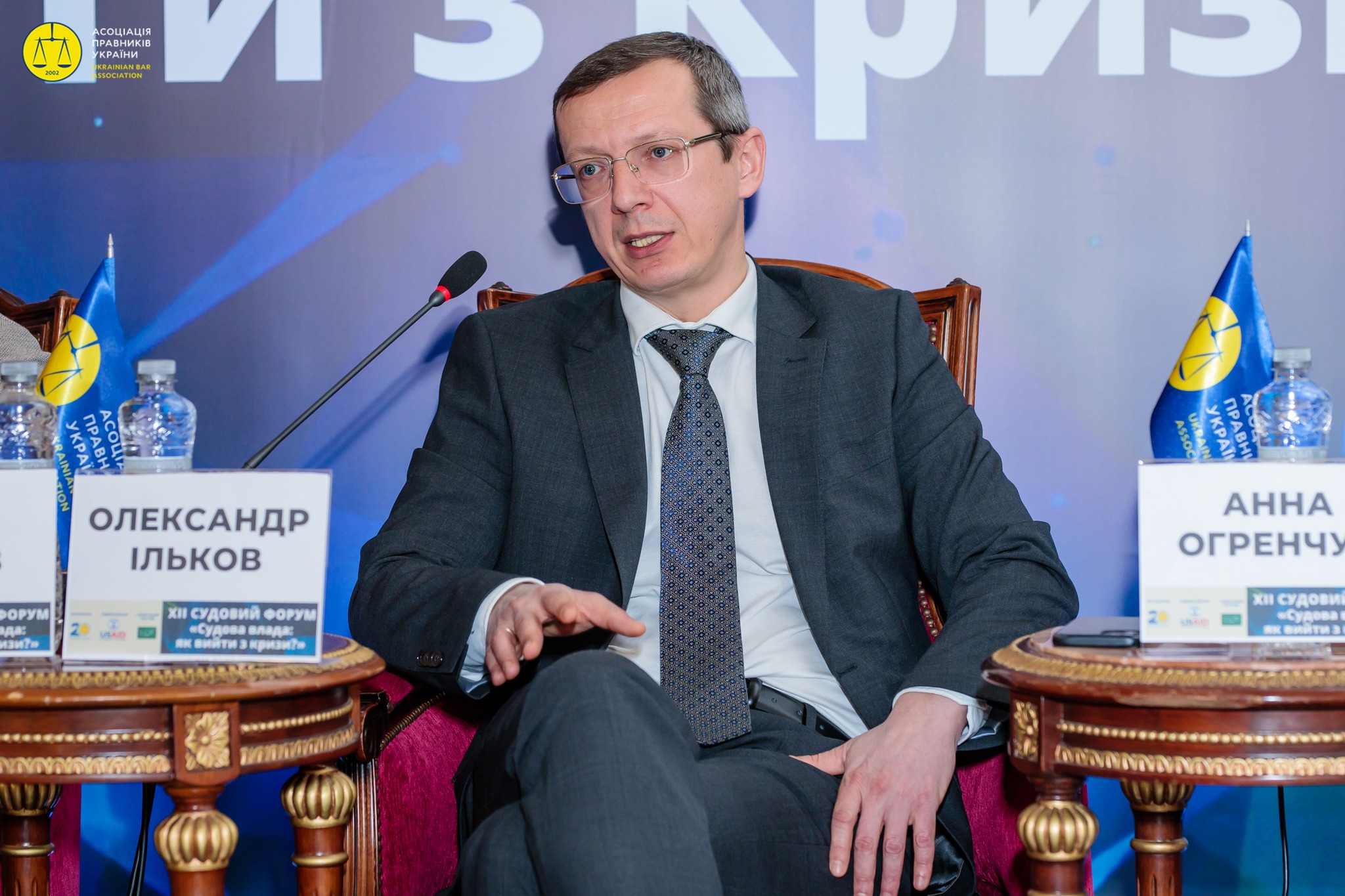
Oleksandr Ilkov, Director General of the Government Office for Coordination of European and Euro-Atlantic Integration, noted that by March 2024, Ukraine must fulfill all additional European integration recommendations, and after that the European Commission must officially approve the start of negotiations on Ukraine's accession to the EU. He added that Ukraine's accession negotiations with the EU will include a key cluster (the so-called fundamentals), which, in particular, will include the issue of judicial reform.
Mykhailo Zhernakov, co-founder and chairman of the board of the DEJURE Foundation, emphasized that in a year's time, the US government may change as a result of the presidential election, and Washington may stop providing assistance to Ukraine. He called on all stakeholders to unite and do everything necessary this year to prevent a crisis in the judiciary.
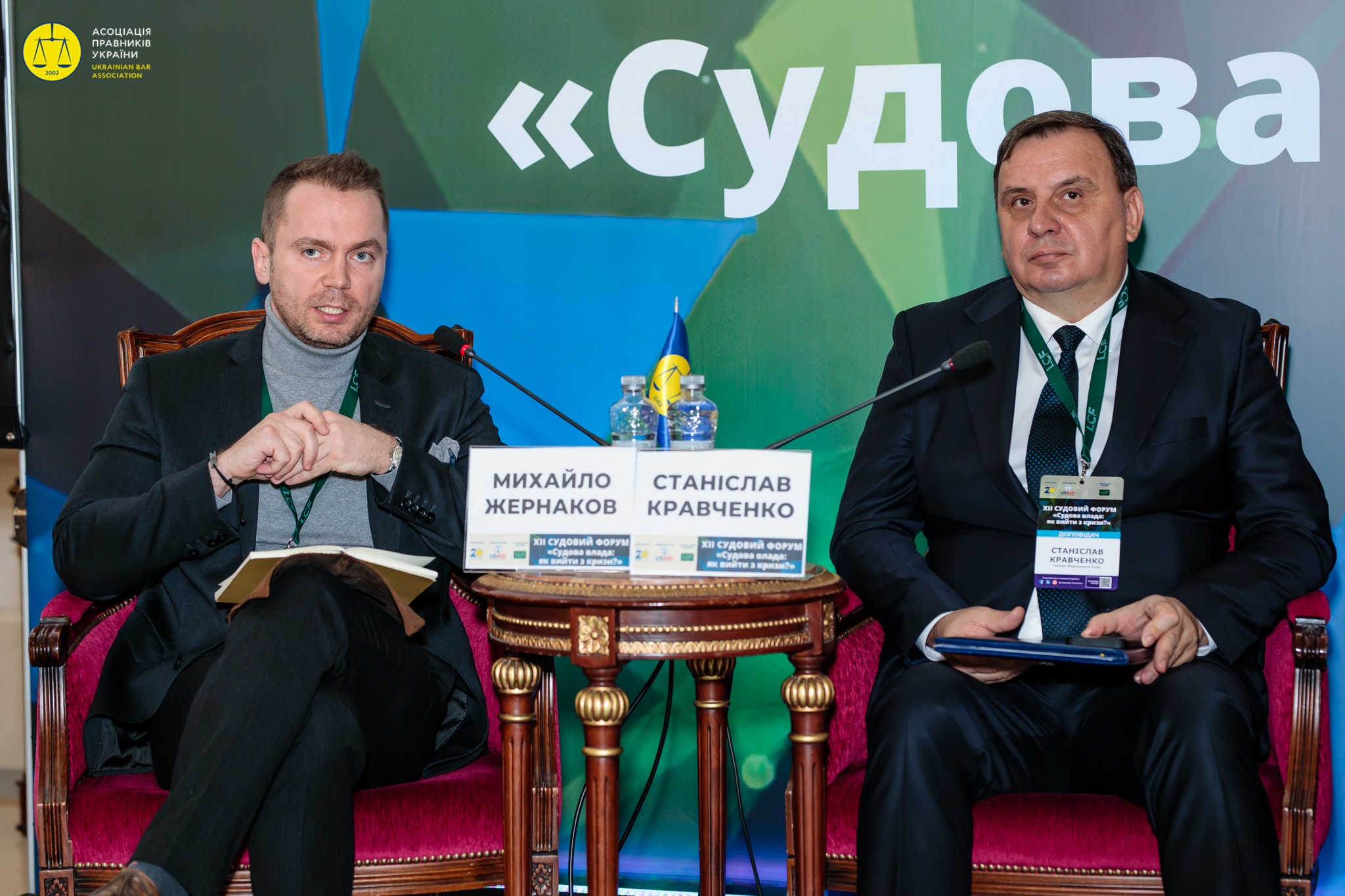
According to Mr. Zhernakov, the European Commission's report on Ukraine shows progress on the part of our country, but much remains to be done, in particular, in the selection of judges, qualification assessment with the participation of the Public Integrity Council, and solving various problems in the bar.
The panelists also touched upon the problem of the lack of judges in the courts of first instance and the related issue of judges' business trips.
The next part of the Judicial Forum was the panel discussion "Sanctions cases and property disputes involving the state: experience and challenges".
The discussion was divided into two sub-panels. The first subpanel was devoted to sanctions cases and was moderated by Volodymyr Vashchenko, co-founding partner and head of Dispute Resolution practice at VB PARTNERS.
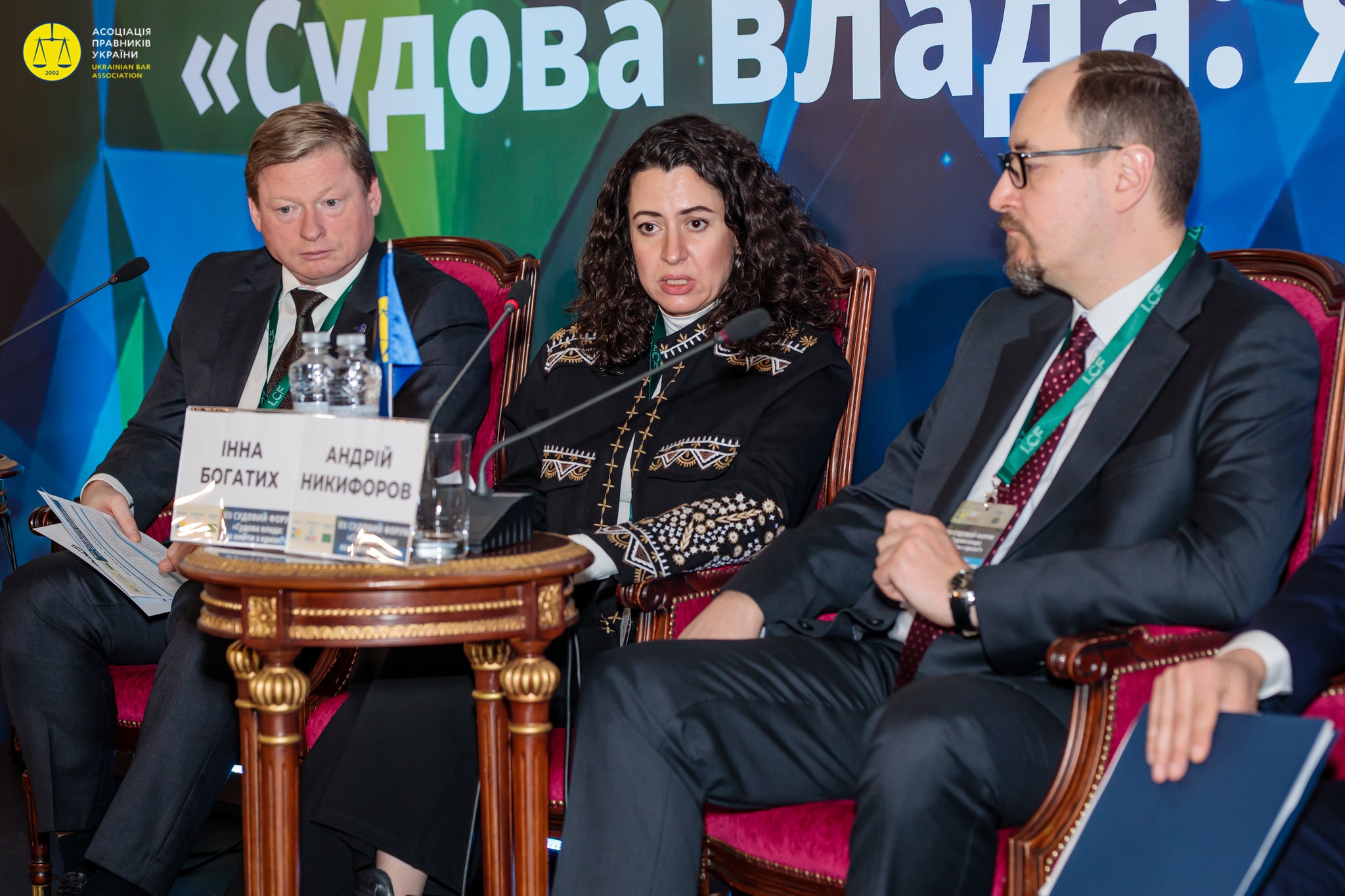
Inna Bohatykh, Director of the Department of Sanctions Policy at the Ministry of Justice of Ukraine, spoke on the peculiarities of consideration and standard of proof in sanctions cases. In particular, she spoke about the complexities of this category of cases, namely:
- lack of full identification data of the sanctioned person, which may result in the impossibility of identifying or verifying his/her assets or significantly complicate this process
- as a rule, a complex corporate structure with the use of offshore companies, trusts and nominee owners;
- difficulties with disclosure of information from banking structures;
- uniqueness of sanctions cases in terms of the grounds for application and their proof.
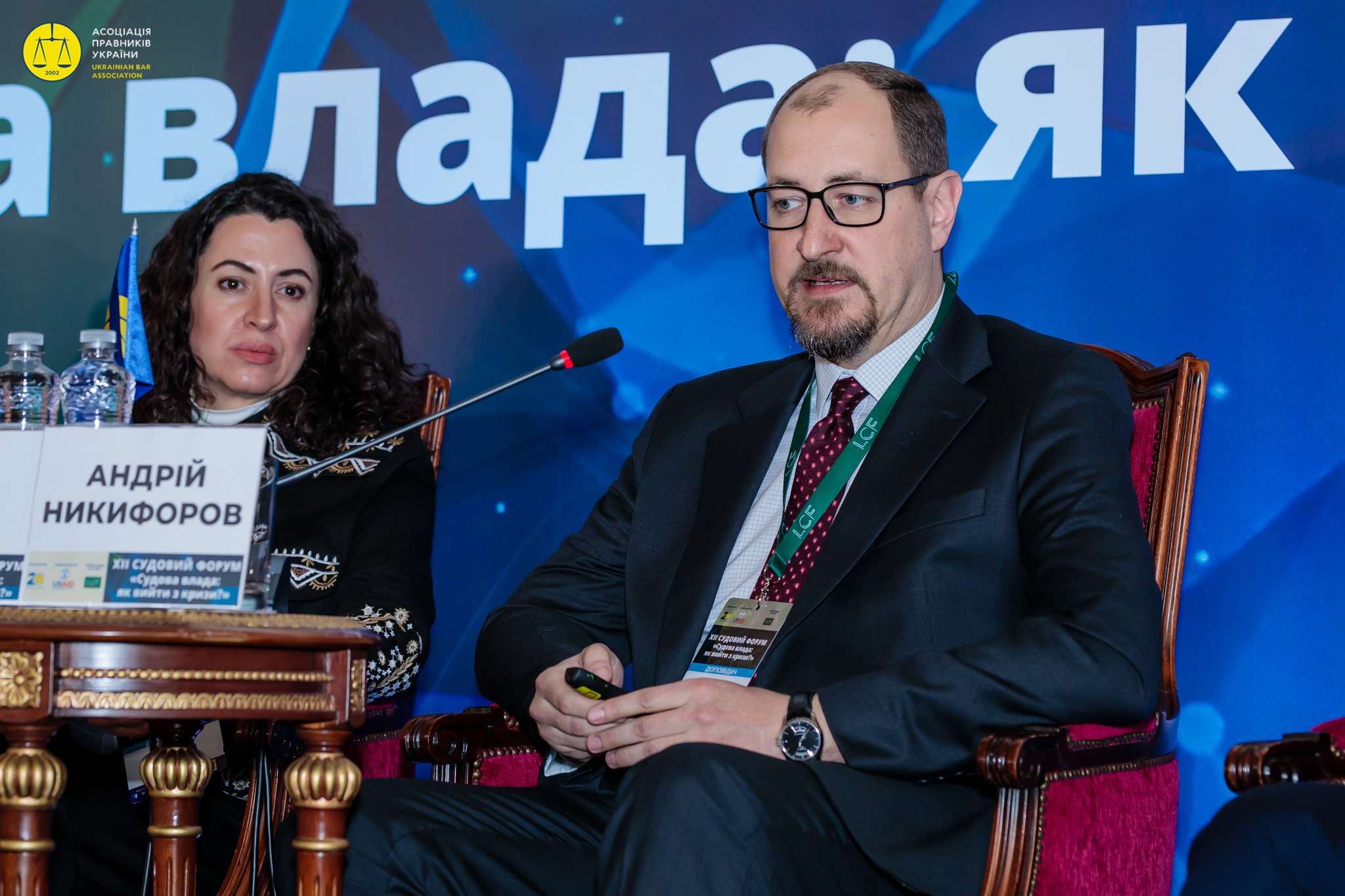
Andrii Nykyforov, judge-speaker of the Appeals Chamber of the High Anti-Corruption Court (HACC), reviewed the court practice of appealing against sanctions. According to him, the HACC has passed 30 decisions in sanctions cases, 9 of which were appealed to the Appeals Chamber of the court. Based on the results of the Chamber's review, 5 of these 9 decisions were reversed (appeals were partially upheld), 3 were left unchanged, and one was denied.
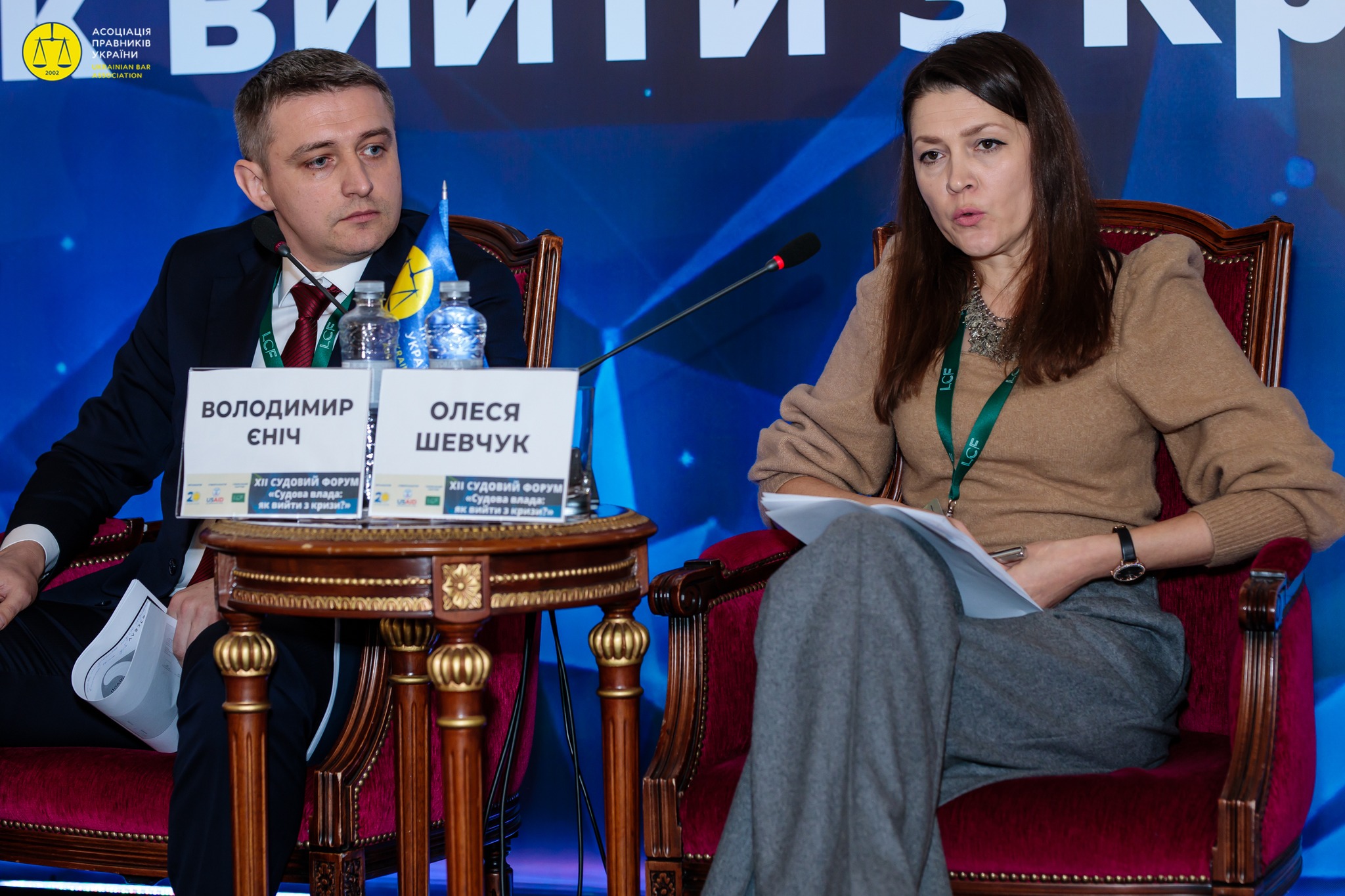
Olesya Shevchuk, Deputy Director of the Legal Department of the State Property Fund of Ukraine, highlighted the issues of managing the property recovered for the state revenue in her speech.
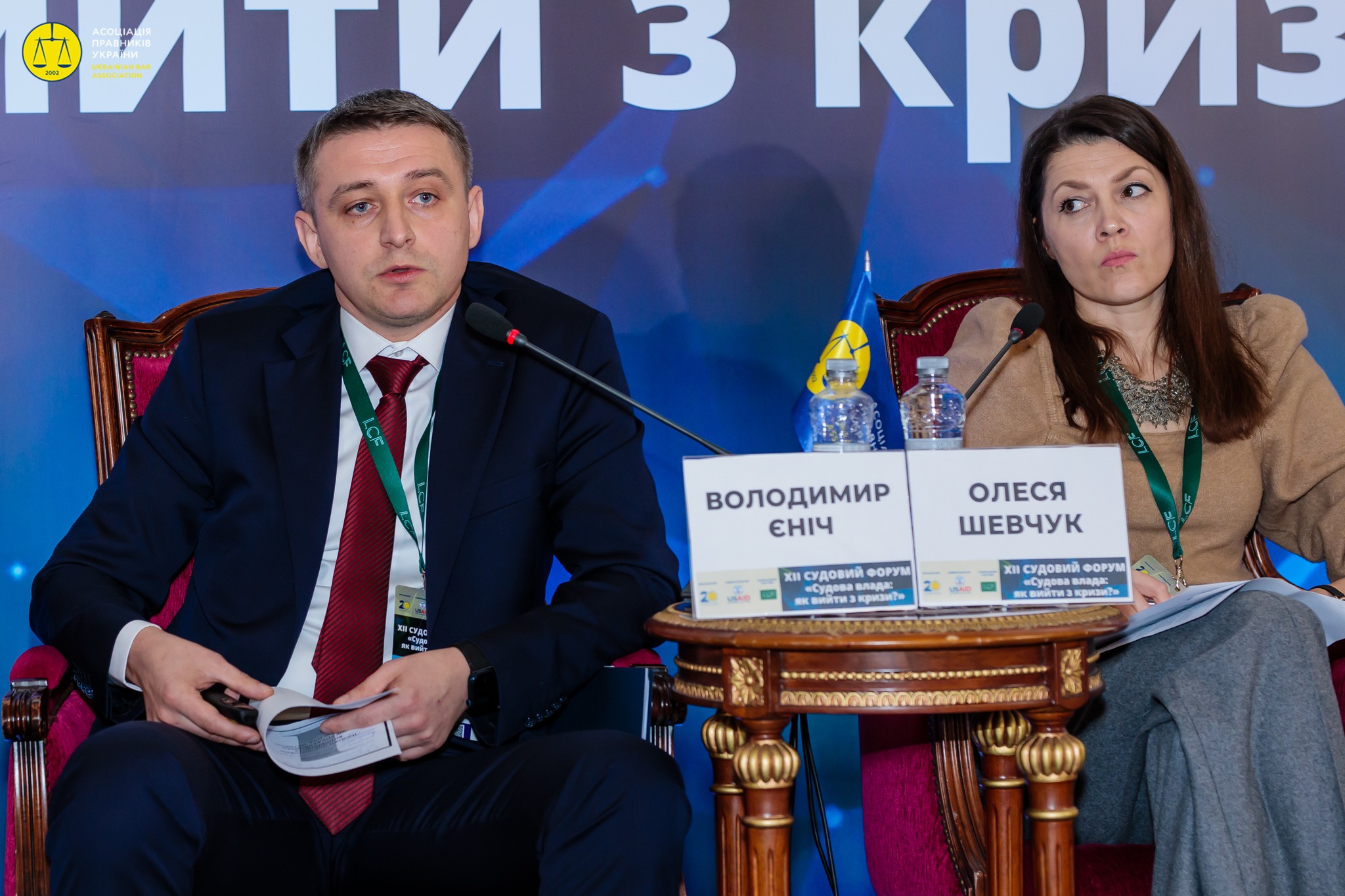
Volodymyr Yenich, Partner at AVER LEX, delivered a report on "10 problems of the procedure of asset recovery to the state revenue". According to him, these problems are:
1. Unclear regulatory definition of indirect control over an asset.
2. Similarity of the grounds for the sanction to the crime under Art. 110-2 of the Criminal Code of Ukraine (financing of actions committed with the aim of violent change or overthrow of the constitutional order or seizure of state power, change of the boundaries of the territory or state border of Ukraine).
3. Reduced timeframes for court proceedings.
4. Asset management during the trial.
5. Application by the court of Art. 283-1 of the Code of Administrative Procedure as a single special rule.
6. Difficulty of ensuring the regime of observance of state secrets and secrecy of investigation.
7. Specificity of the standard of proof in the process of asset recovery.
8. The status of criminal proceedings in the administrative process of asset recovery.
9. Limitation of the rights of defendants and third parties after the entry into force of the decision on recovery.
10. The stage of asset management and realization.
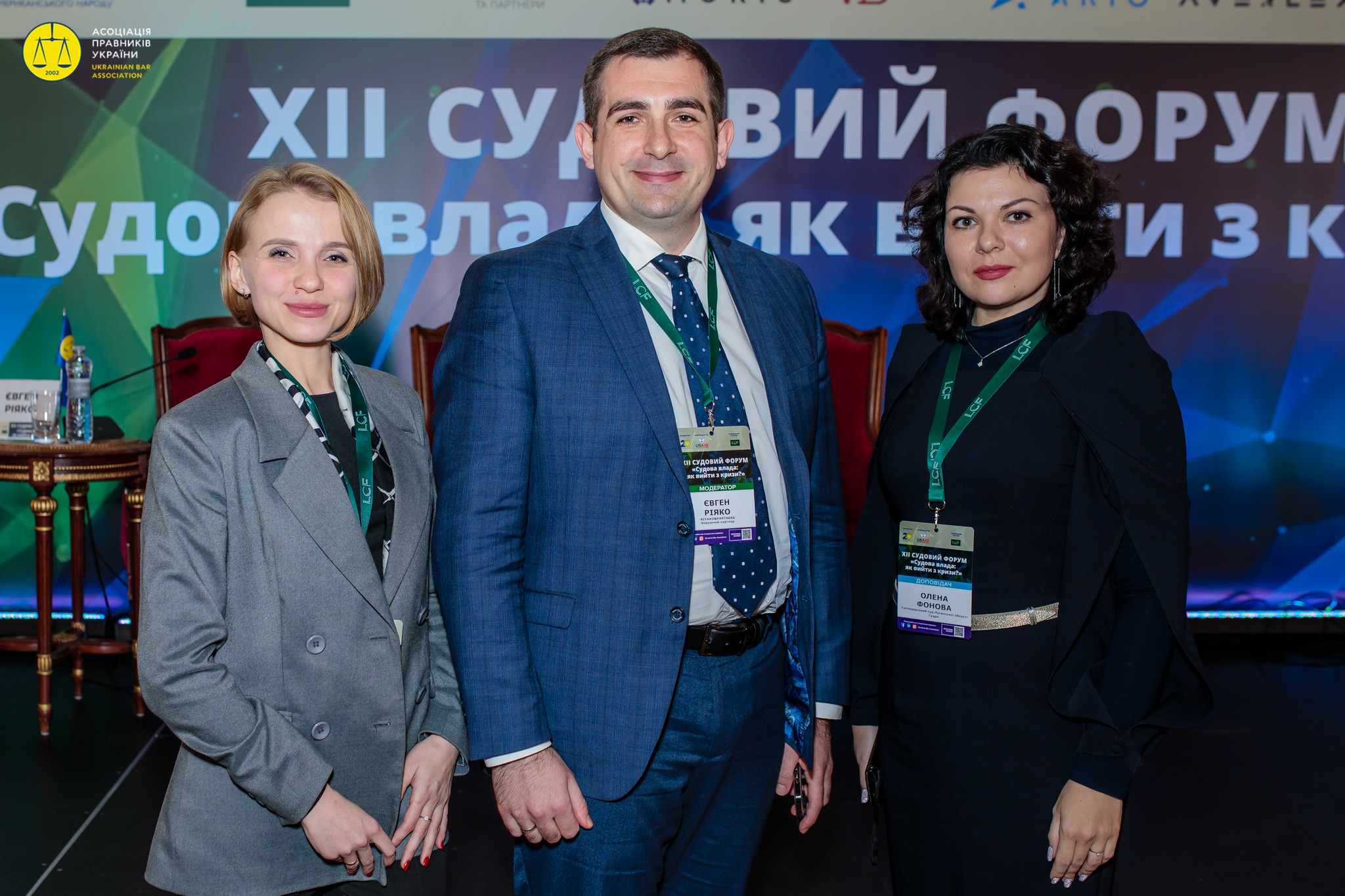
The topic of the second discussion subpanel was property disputes involving the state and compensation for damages. The discussion was moderated by Yevgeniy Riyako, Managing Partner of RIYAKO & PARTNERS.
The panelists discussed the following issues:
- disputes regarding the expropriation of property;
- disputes regarding the return of land to state and municipal ownership;
- compensation for damages to civilians caused by the war.
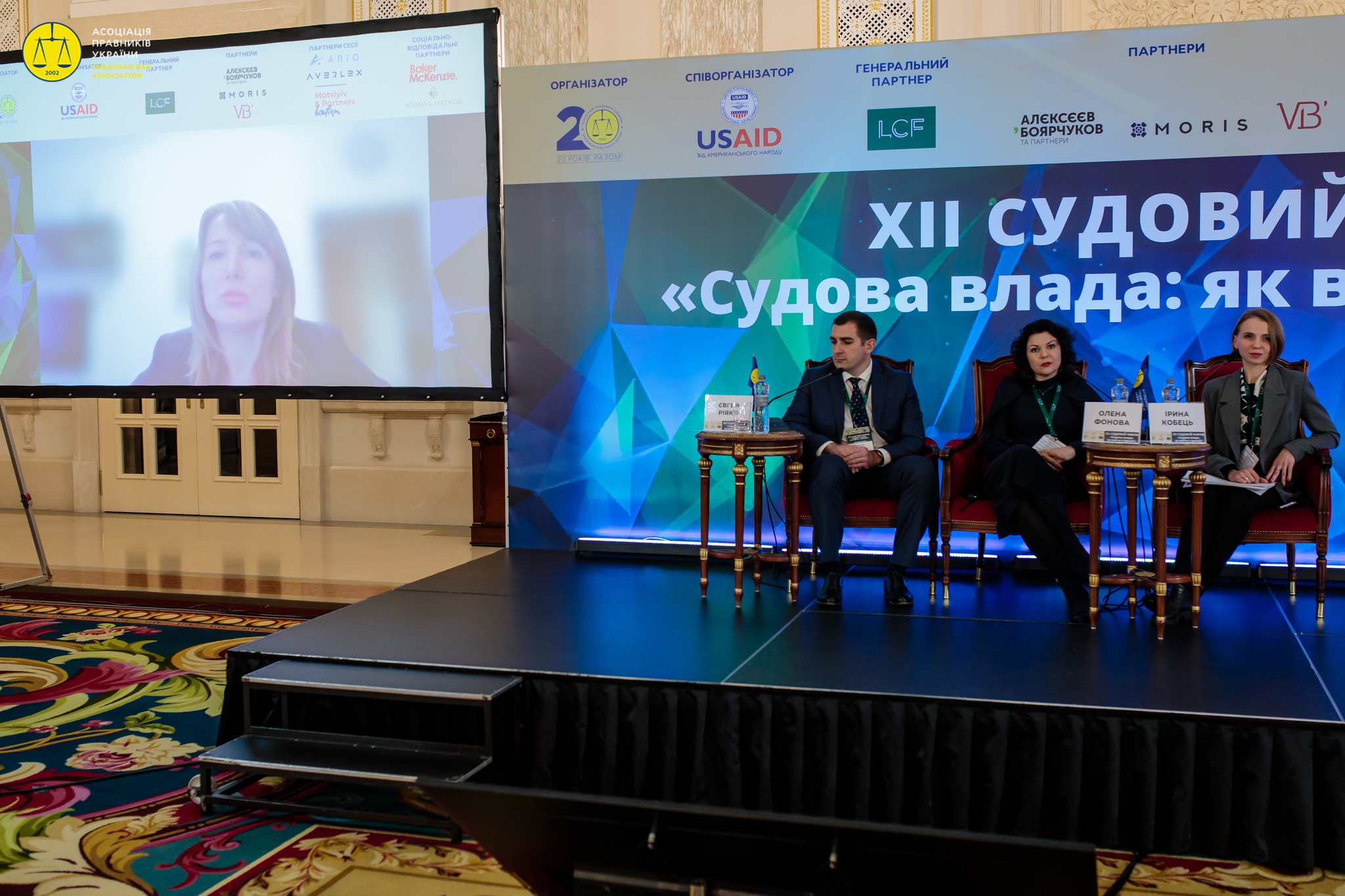
Hanna Tyshchenko, Director of the Department of International Cooperation and Representation of the Ministry of Justice of Ukraine, said that the Ministry is now focusing on concrete steps to recover frozen Russian assets abroad. According to her, the Ministry of Justice is working on the creation of an international compensation mechanism that will consist of three elements:
1) international register of damage;
2) an international compensation commission;
3) a compensation fund to which all funds will flow and from which compensation can be paid in the future.
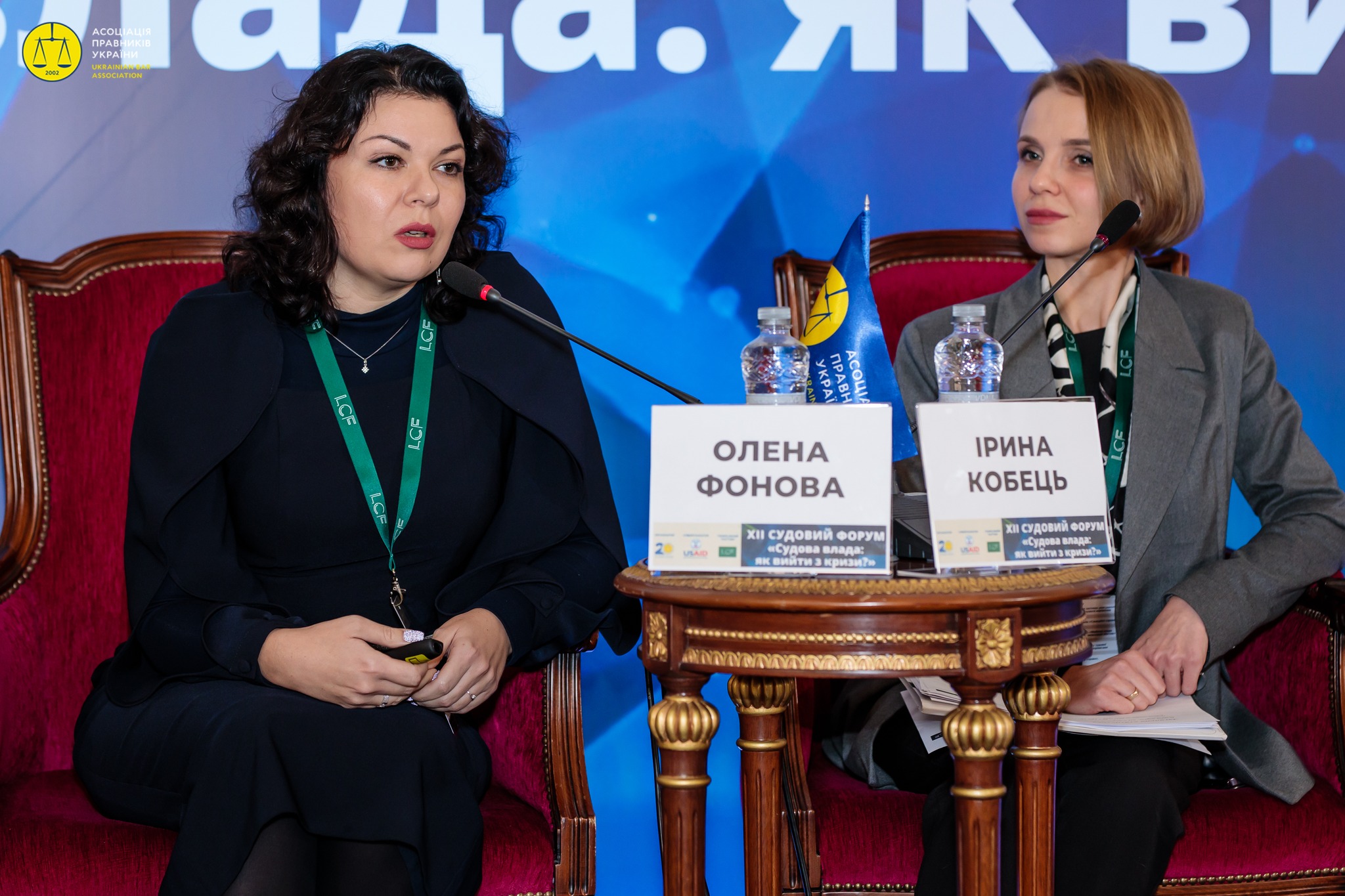
Olena Fonova, Judge of the Economic Court of Luhansk Region, spoke about the compulsory alienation or seizure of property under martial law. Thus, the types of alienation of property during martial law are:
- expropriation of property;
- seizure of property;
- compulsory alienation or seizure of movable property that is used or may be used to ensure the operation of enterprises of the defense industry of Ukraine;
- military transportation duty;
- the obligation of citizens to provide buildings, structures, vehicles and other property they own to the Armed Forces of Ukraine, other military formations, and the civil defense rescue service in accordance with the established procedure during mobilization, with the state reimbursing their cost;
- transfer of property for the needs of the Armed Forces of Ukraine, the National Guard, the Security Service of Ukraine, the Foreign Intelligence Service, the State Border Guard Service, the Ministry of Internal Affairs, the National Police, the State Emergency Service, the State Protection Department, etc.
Iryna Kobets, Partner, Head of Dispute Resolution at LCF Law Group, familiarized the audience with the trends in property disputes involving the state. Thus, the NABU, the SAPO and the SBI have become new participants in private law proceedings. Looking at this from a procedural point of view, the involvement of a third party is not contested, and the possibility of excluding this person from the participants is not provided. At the same time, a law enforcement agency as a third party has the full range of procedural rights, including the right to provide evidence and appeal court decisions.
The third session of the XII Judicial Forum was devoted to trends in the development of judicial practice in key areas. The session was moderated by Julian Khorunzhyi, Senior Partner at Ario Law Firm.
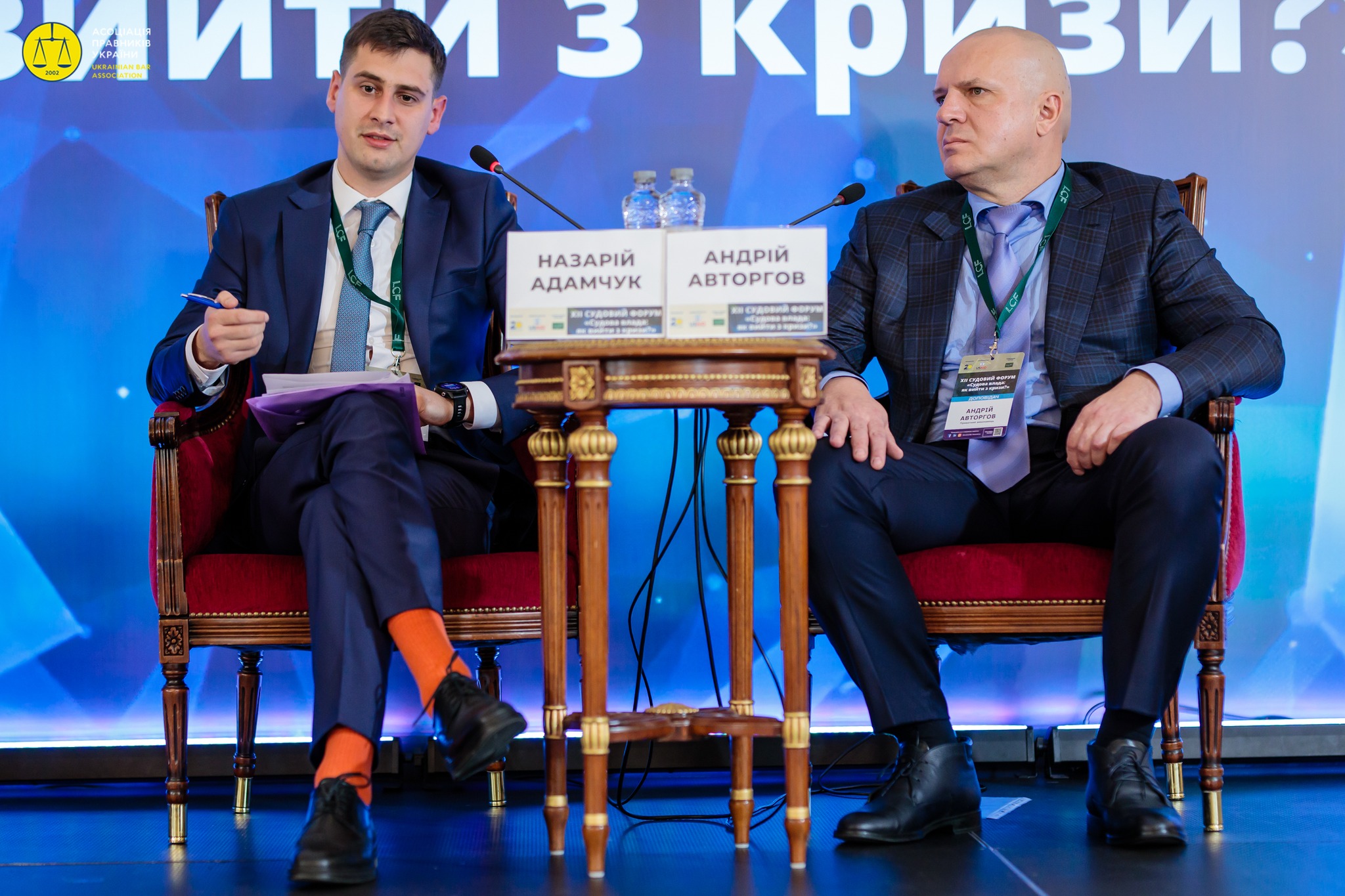
Nazariy Adamchuk, Partner at Alekseev, Boyarchukov and Partners, delivered a report on "Protection of property rights in times of war: legislation and court practice".
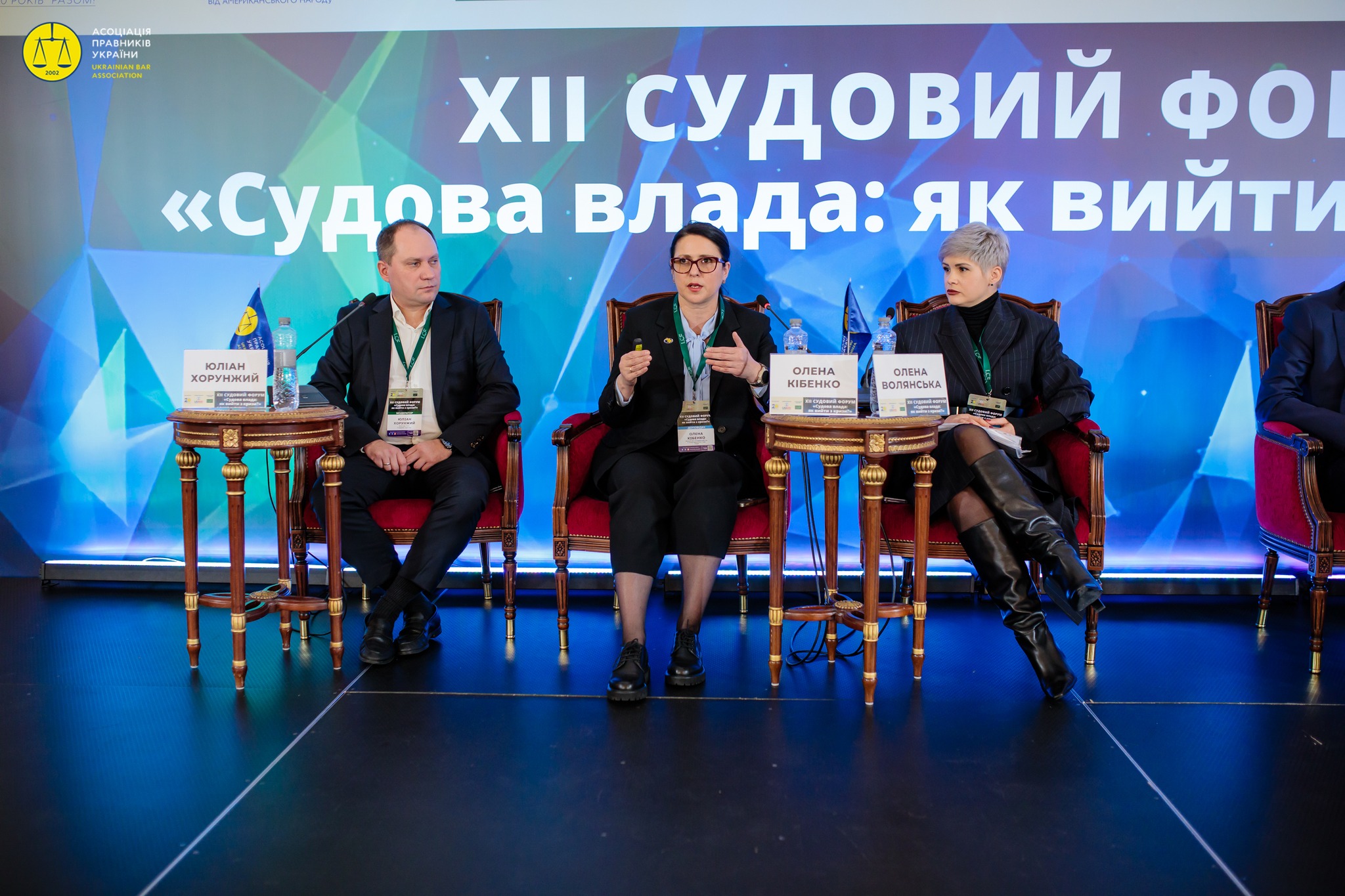
Olena Kibenko, judge of the Cassation Commercial Court within the Supreme Court, gave an overview of the current court practice in corporate disputes.
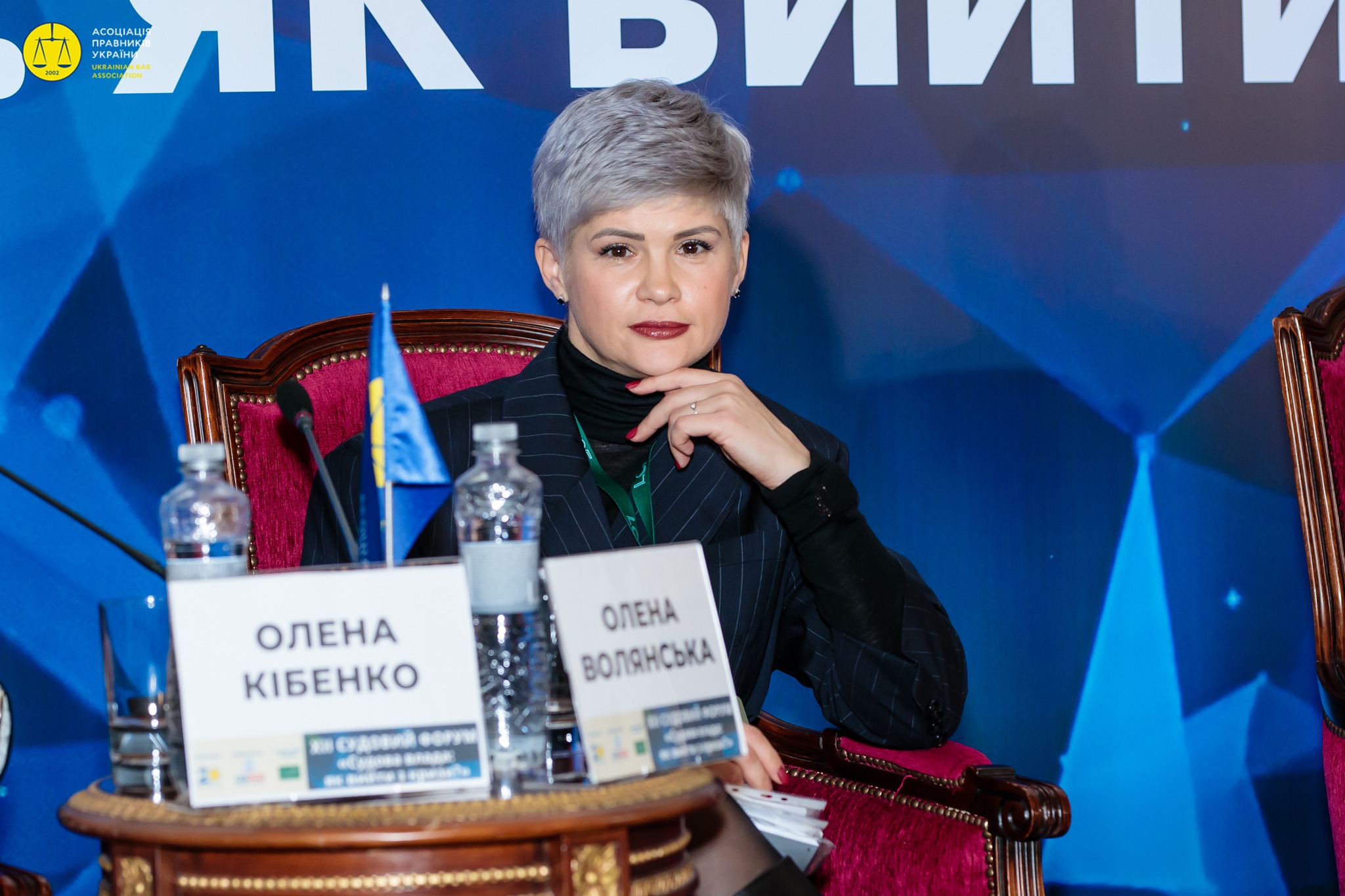
Olena Volyanska, Partner at LCF Law Group, familiarized the audience with the current court practice in bankruptcy cases. According to her, the most crucial issues of court practice in this category of cases are:
- fraudulent and invalid transactions;
- subsidiary and joint and several liability;
- compliance with procedural deadlines;
- concentration of litigation involving a debtor in a bankruptcy case;
- payment of remuneration to the insolvency officer;
- abuse of power by participants in bankruptcy cases.
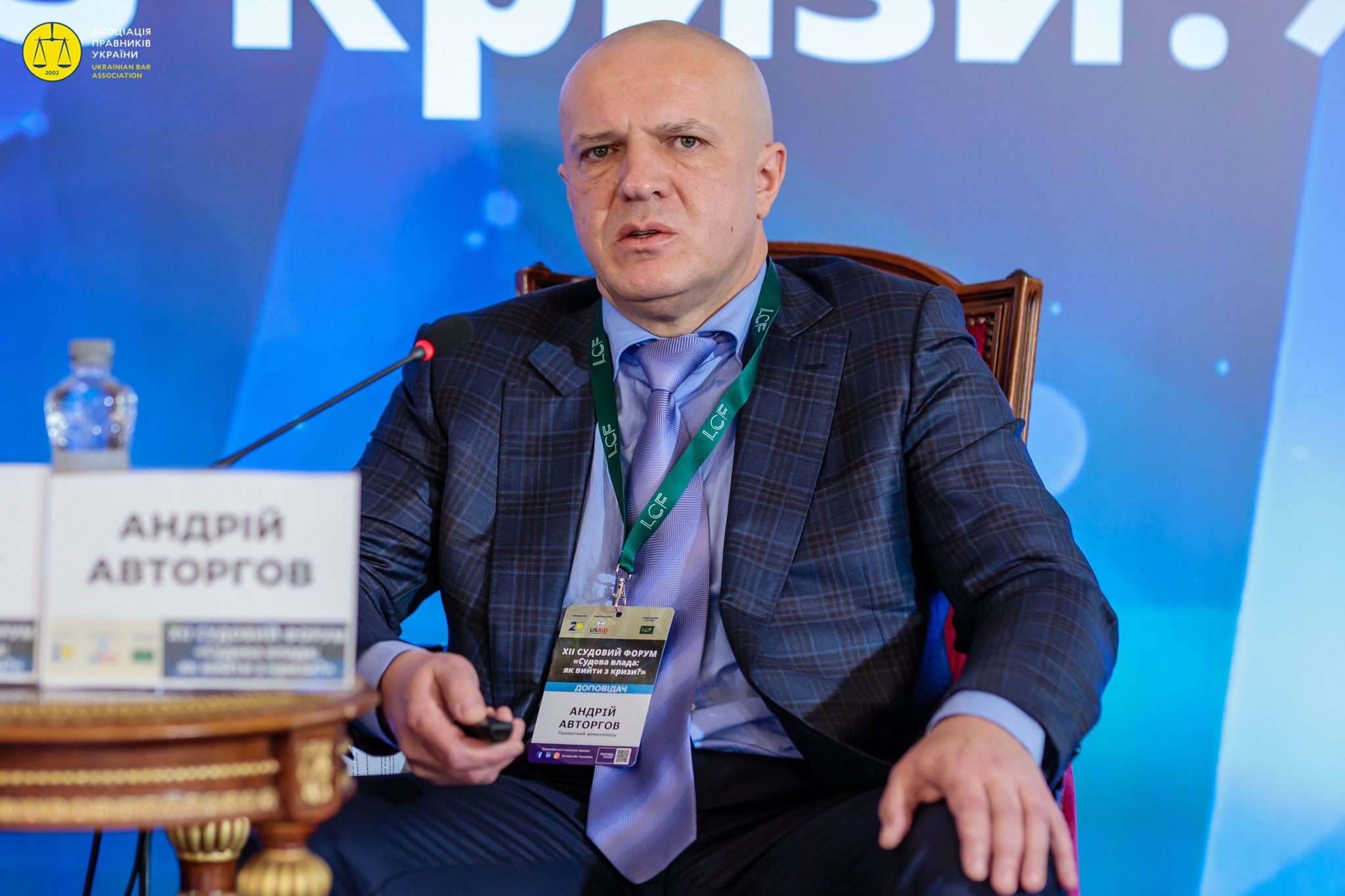
Andriy Avtorgov, a private enforcement officer, highlighted the current issues of enforcement of court decisions under the legal regime of martial law. He noted that after the outbreak of a full-scale war, the following laws in the field of enforcement were adopted:
- No. 2129-IX dated March 15, 2022 "On Amendments to Section XIII "Final and Transitional Provisions" of the Law of Ukraine "On Enforcement Proceedings", according to which:
- individuals may spend funds from accounts seized by the state executive service and private enforcement officers without taking into account such seizure, provided that the amount of recovery under the enforcement document does not exceed UAH 100 thousand (the provision has been repealed);
- legal entities-debtors may spend funds from accounts seized by the state executive service and private enforcement officers solely to pay wages in the amount of no more than five minimum wages per month per employee of such legal entity, as well as to pay taxes, fees and a single contribution to the obligatory state social insurance;
- the enforcement of wages (the provision is no longer in force in respect of wages), pensions, scholarships and other income of the debtor (except for decisions on the recovery of alimony and decisions where the debtors are citizens of the Russian Federation) is terminated.
2) No. 3048-IX dated April 11, 2023 "On Amendments to Certain Laws of Ukraine on Certain Peculiarities of the Organization of the Enforcement of Court Decisions and Decisions of Other Bodies during the Period of Martial Law".
The fourth session of the XII Judicial Forum focused on justice in war-related cases. The discussion was moderated by Viktoriya Konovalova, Head of the UBA Donetsk Regional Branch, attorney at law.
The first issue proposed for discussion was the challenges faced by judges, prosecutors and defense attorneys in war crimes cases.
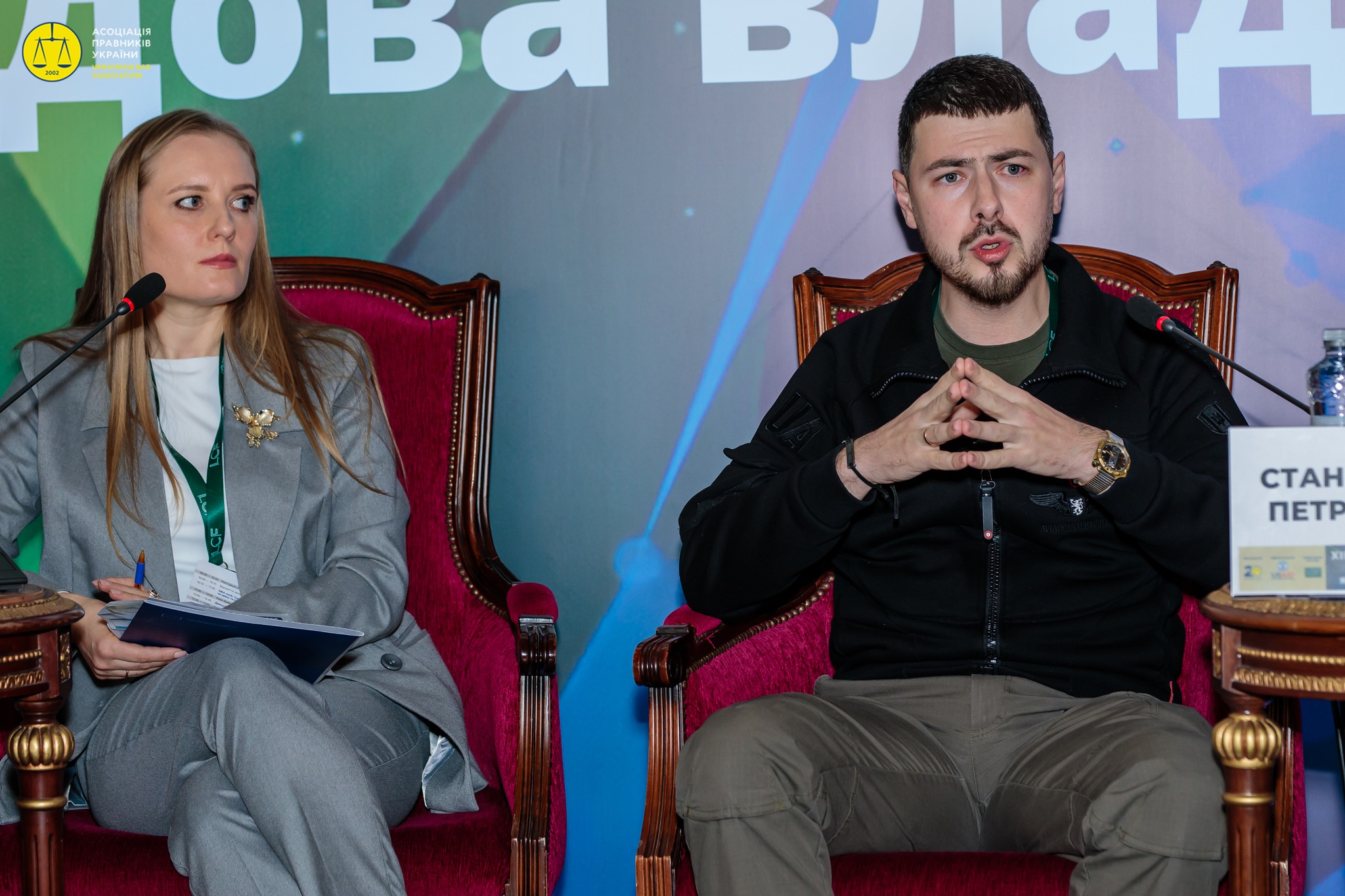
Stanislav Petrenko, Head of the Organizational and Methodological Division of the Department for Combating Crimes Committed in the Context of Armed Conflict, Office of the Prosecutor General, said that as of today, more than 100,000 crimes related to the armed conflict have been registered in Ukraine, the vast majority of them being war crimes. He emphasized that a significant number of proceedings in this category of cases are considered in absentia. Mr. Petrenko also drew attention to the difficulty of forming a unified practice in war crimes cases.
Mykhailo Odariuk, Deputy Chairman of the Irpin City Court of Kyiv Region, said that his court is currently suffering from the workload caused by the number of war-related cases.
Mr. Odariuk mentioned the issues of finding out whether a Russian occupier accused of a crime is still alive and properly notifying the accused of the court hearing.
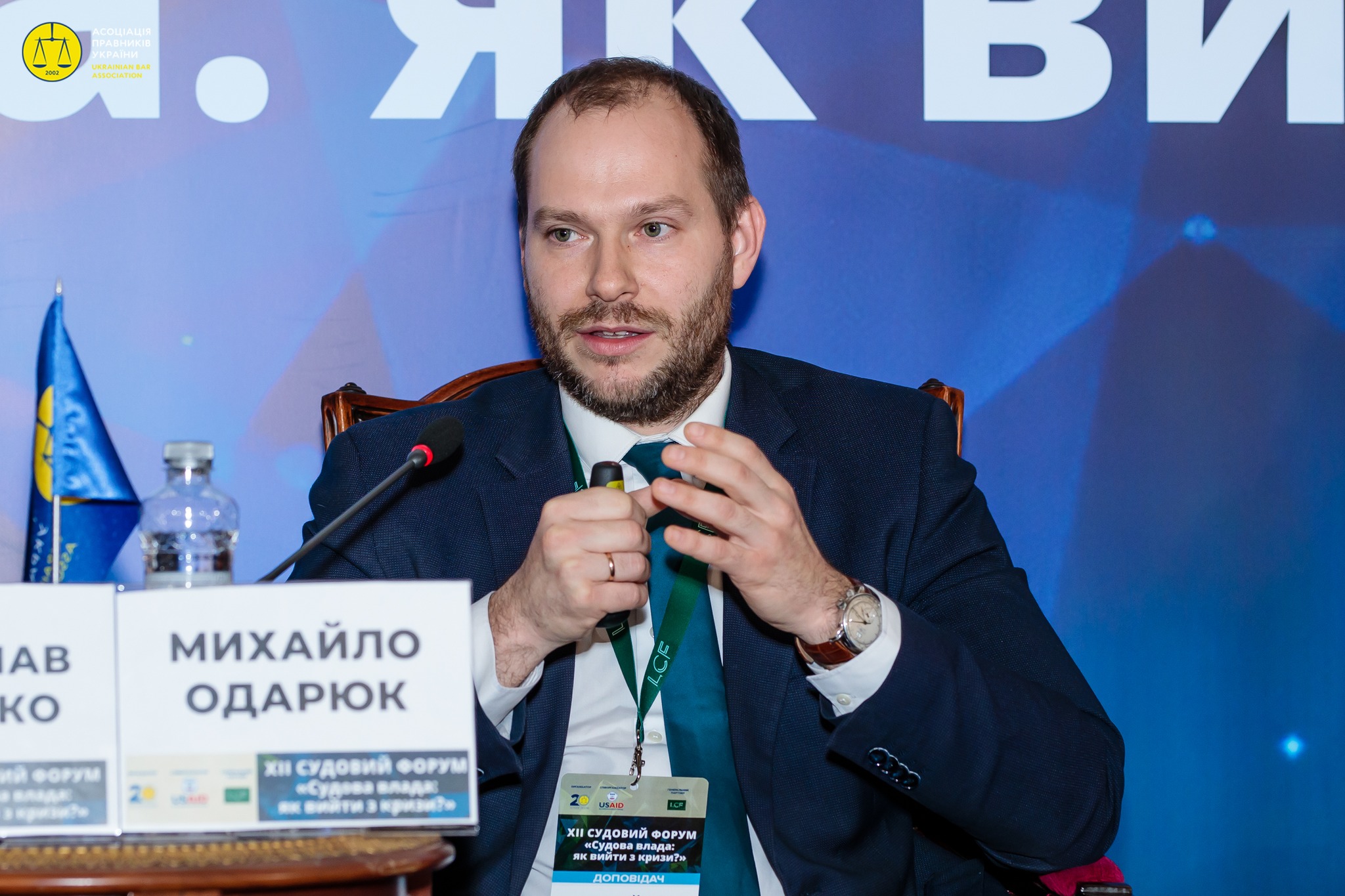
Mykhailo Odariuk paid special attention to the defense of those accused of war crimes — usually their interests are represented by lawyers through free legal aid, which in turn affects the quality of defense. The speaker cited an example when the prosecution requested 10 years in prison for a Russian military officer, and the defense counsel did not raise any objections, only asked to reduce the term to 9.5 years. According to Mr. Odariuk, the Supreme Court and the ECHR emphasize in their case law that the defense of defendants in absentia should be carried out at a high level.
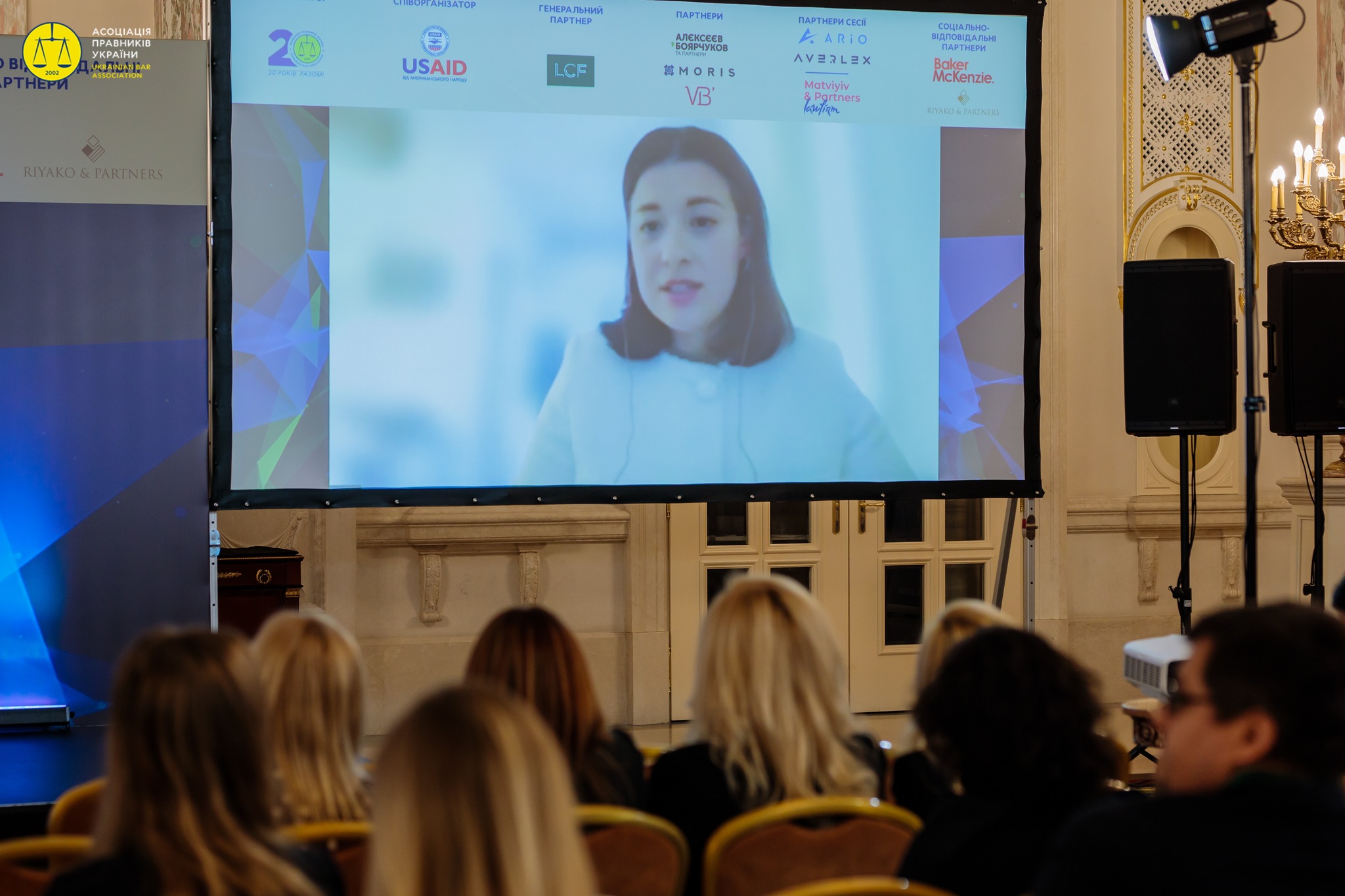
Ulyana Pashynna, USAID Justice for All Program Legal Advisor, noted that half of the lawyers who had experience in war crimes cases faced a negative public reaction to their defense of accused Russian invaders: citizens perceive such activities of the defense lawyer as treason, associating the lawyer with the client.
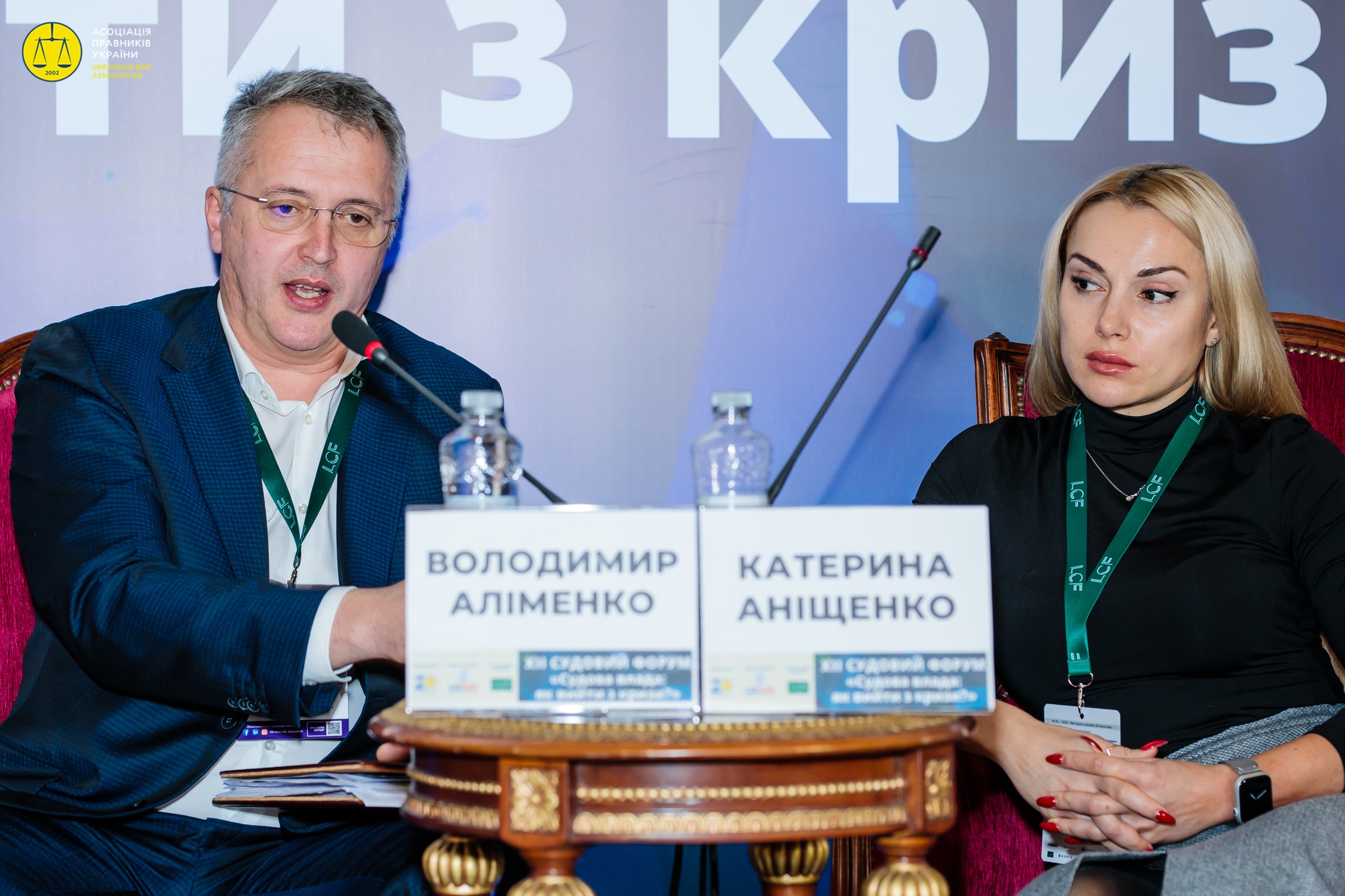
The second issue of the discussion was the current state, problems and prospects of enforcement of court decisions in cases of recovery of remuneration and other payments guaranteed to military personnel. Volodymyr Alimenko, Deputy Chairman of the Sixth Administrative Court of Appeal, presented the judge's view on this issue, and Kateryna Anishchenko, attorney at RIYAKO&PARTNERS, presented the defense counsel's view.
The XII Judicial Forum was concluded with the HARDtalk discussion "Legal Liability as a Component of Judicial Reform". The discussion was moderated by Ksenia Prokhur, Counsel of Dispute Resolution at Baker McKenzie. The following experts joined the discussion:
- Roman Maselko, Member of the High Council of Justice;
- Vira Mykhailenko, Head of the High Anti-Corruption Court;
- Serhiy Matviyiv, Managing Partner of Matviyiv & Partners Law Firm;
- Andriy Savchuk, Partner at MORIS.
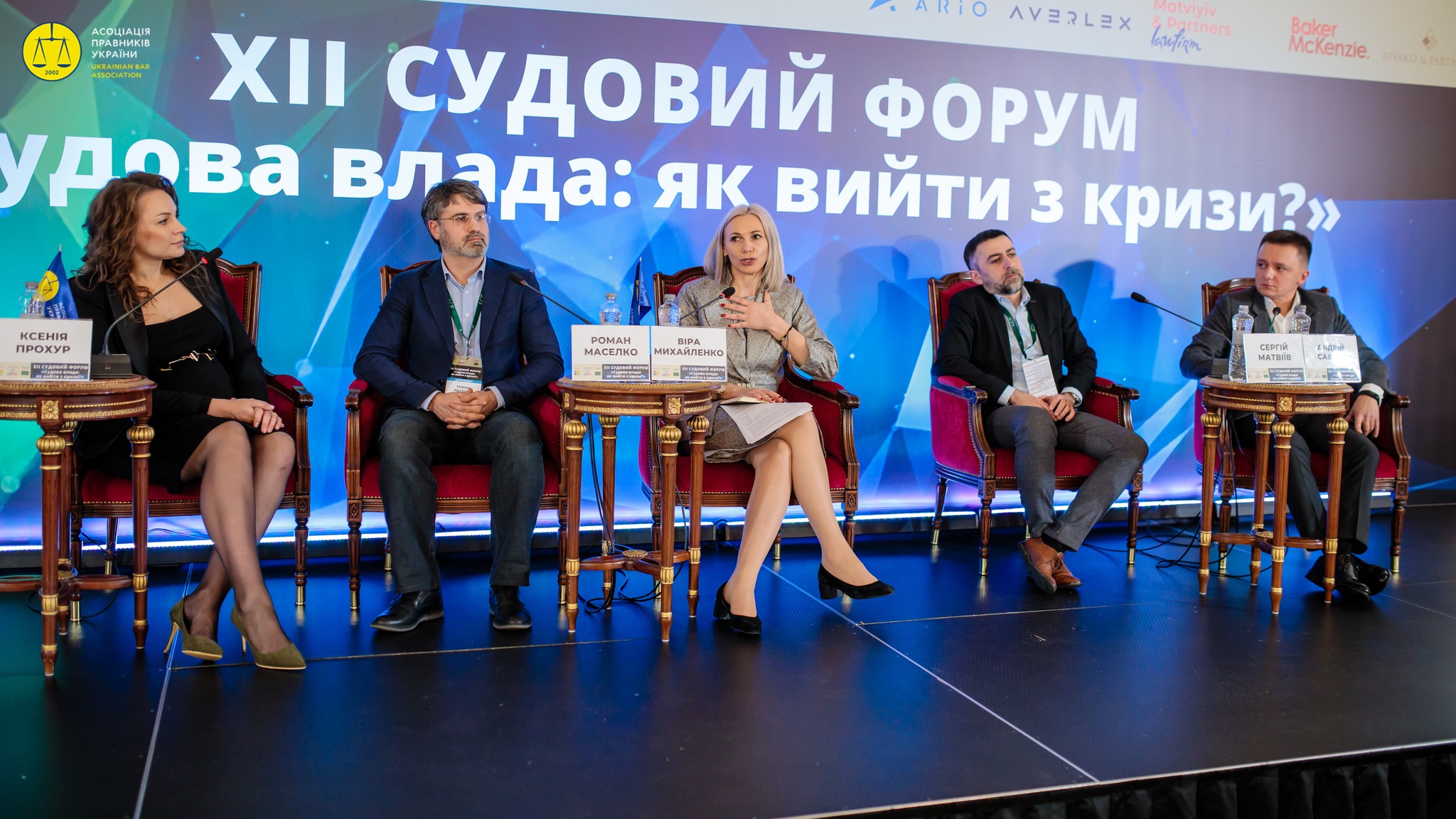
The discussion focused on the following issues:
- Corruption scandals in the judicial system: ways to overcome and prevent them.
- Procedural and disciplinary liability of lawyers. Search for the boundaries of the permissible. The view of the court and the bar.
- The practice of considering disciplinary complaints against judges. The role of the Bar and the HCJ's approach.
Here are some of the theses of the participants' speeches:
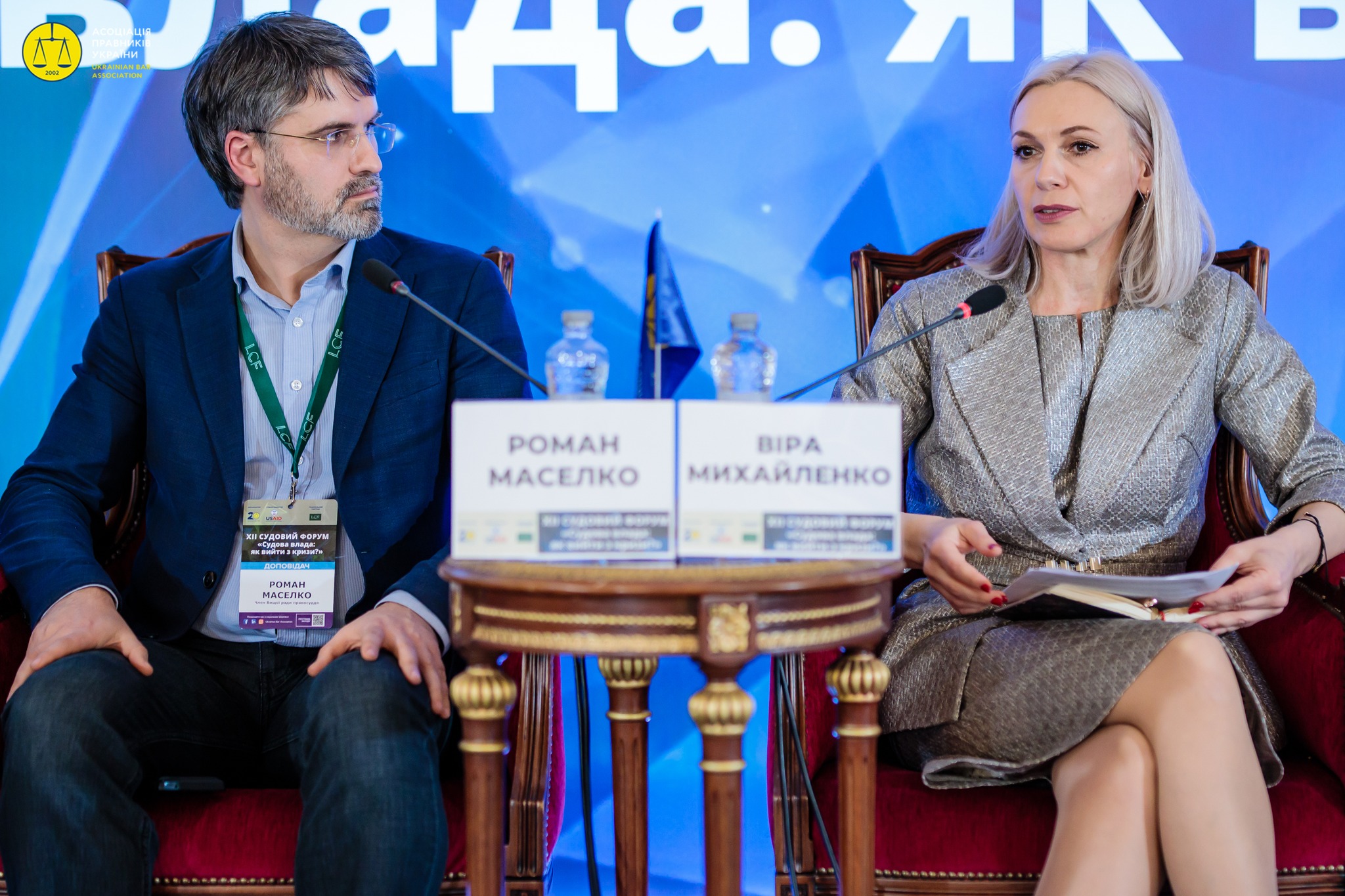
Vira Mykhailenko:
- It is offensive when dishonest judges cast a shadow over the entire judiciary.
- Often, in litigation, lawyers literally compete with the court and show disrespect for it, so we should not forget about the ethical and reputational components of the legal profession.
- HACC judges have filed 94 complaints with the qualification and disciplinary commissions of the bar during the work of this court. In 13 cases, lawyers were brought to justice.
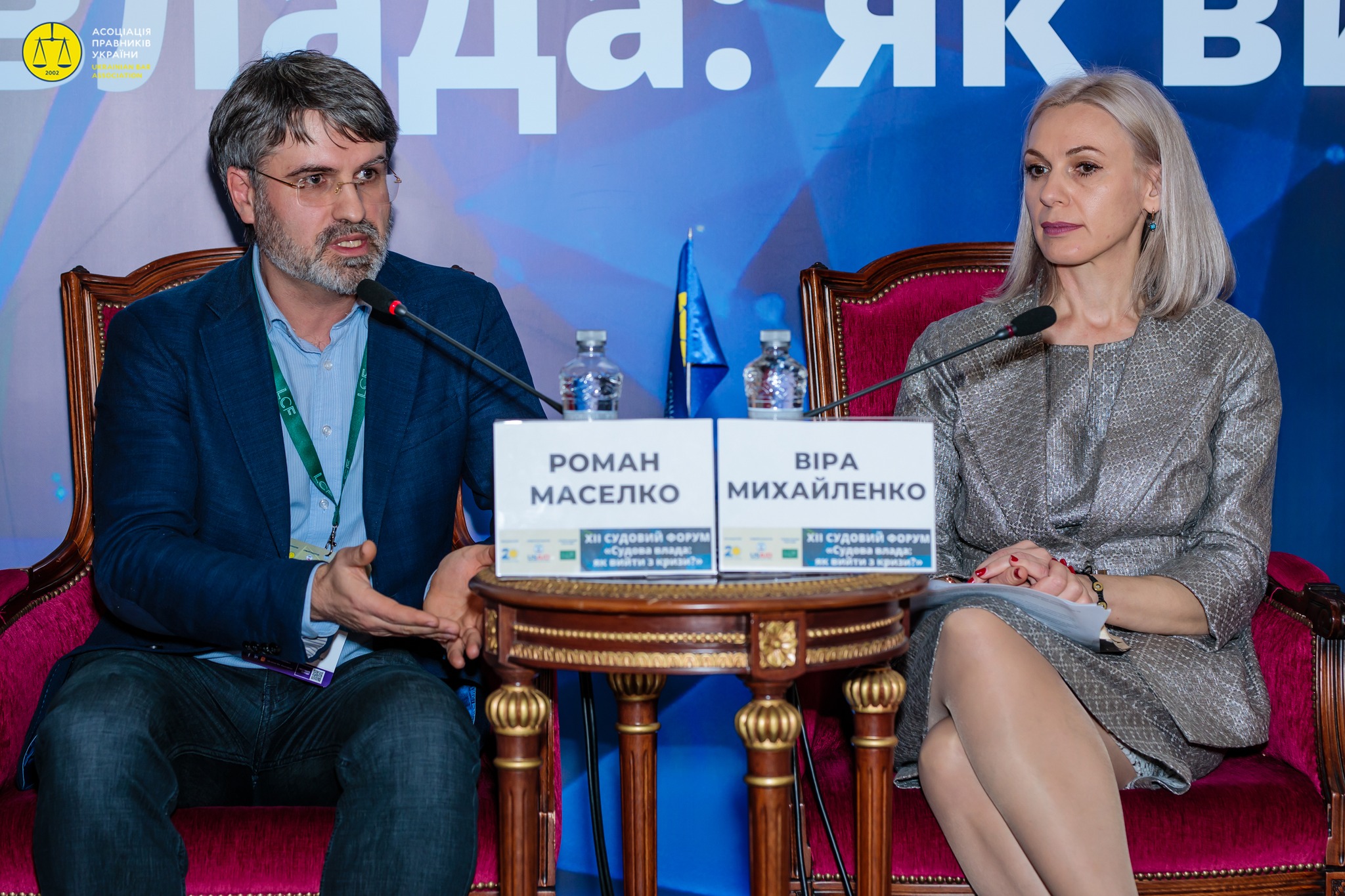
Roman Maselko:
- It is necessary to recruit honest judges and ensure their integrity.
- For a judge, it is important not only to be honest, but also to "create an atmosphere of integrity around him or her."
- The inevitability of punishment must be ensured.
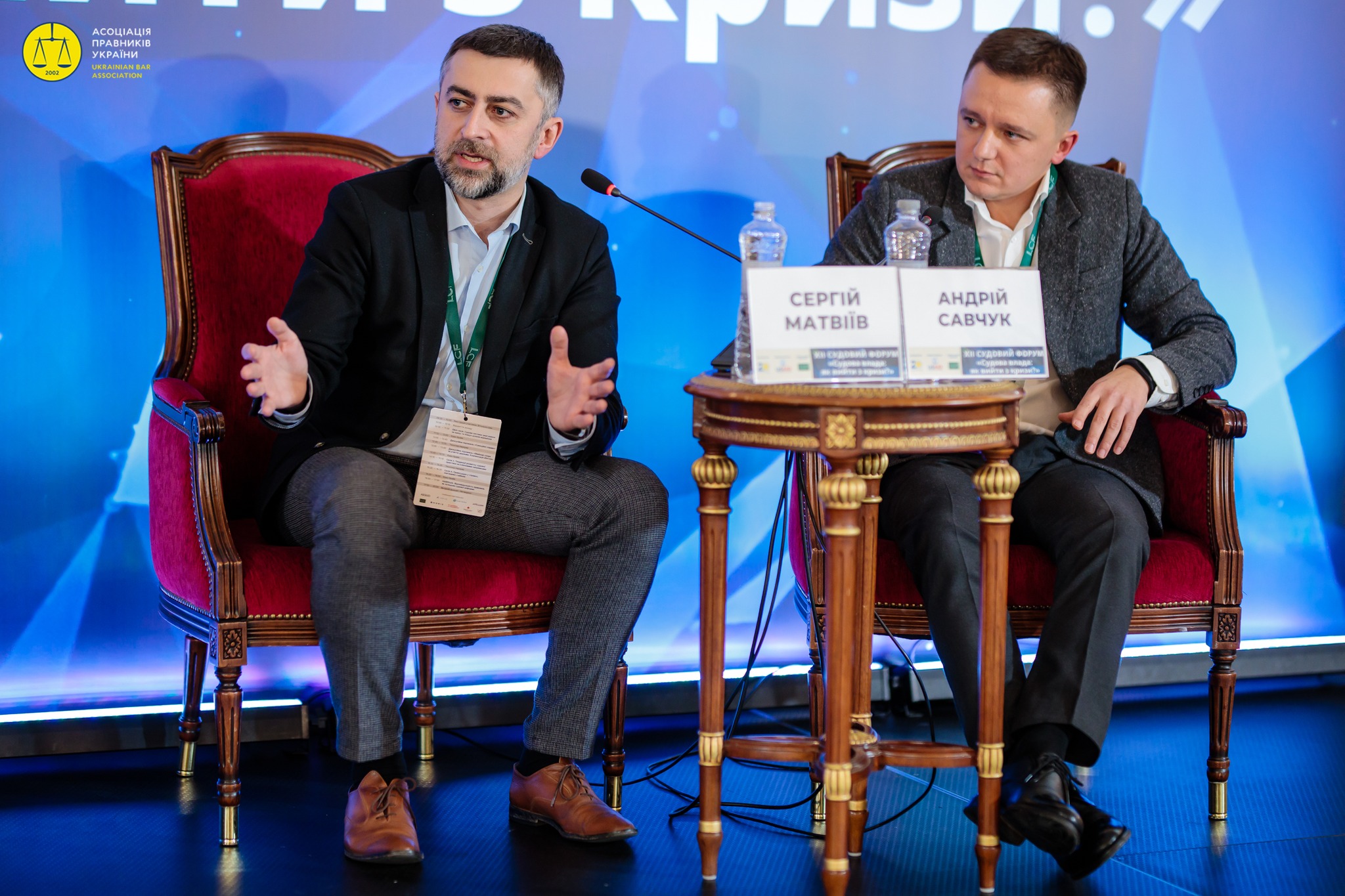
Serhiy Matviyiv:
- The bar also plays a significant role in ensuring the integrity of justice.
- The court lacks tools to stop "procedural hooliganism" by lawyers.
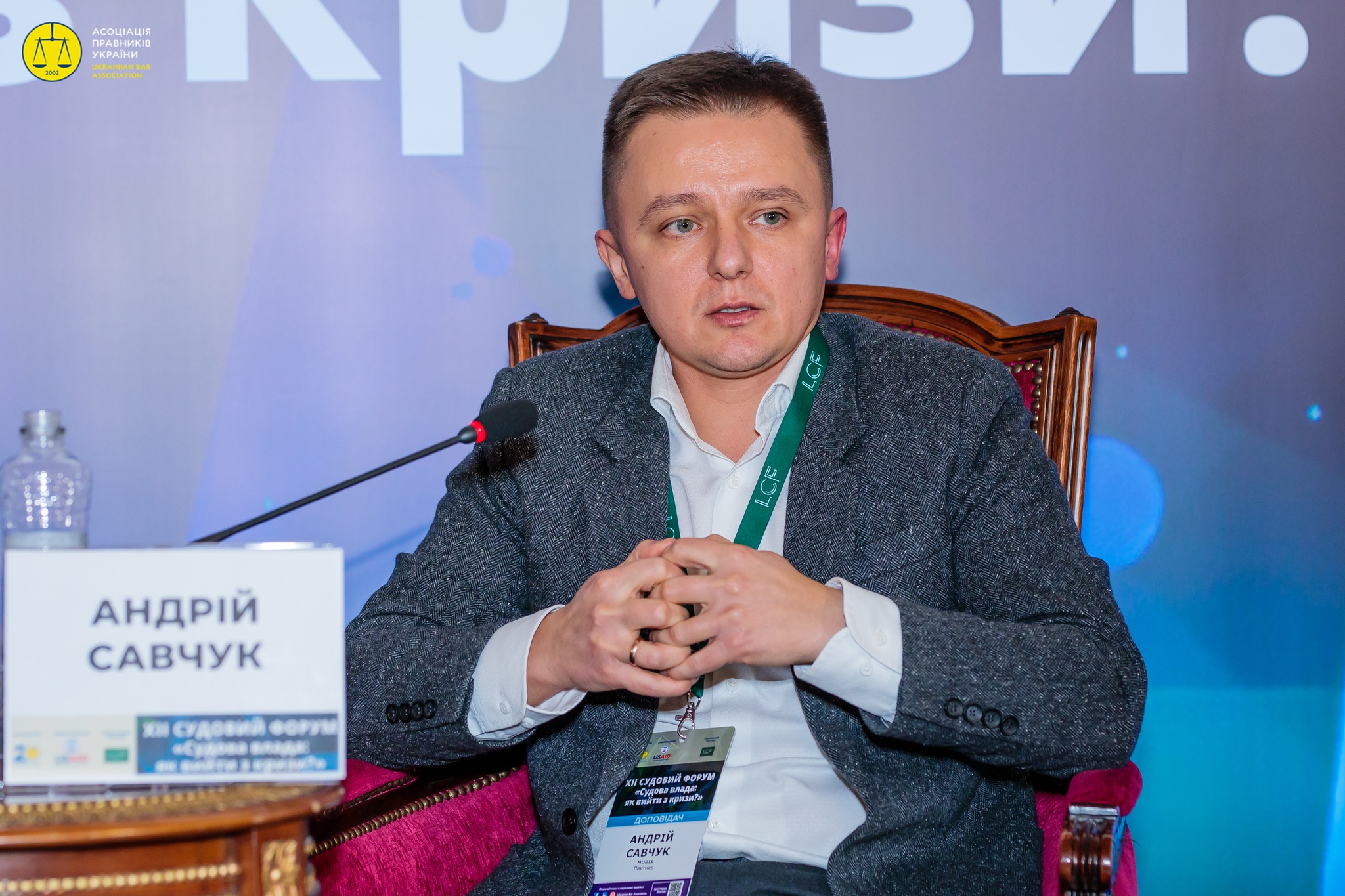
Andriy Savchuk:
- There is a misconception in Ukrainian society that the courts are totally corrupt.
- High-quality work of the HCJ and the HQCJ is key to ensuring the integrity of judges.
- If an attorney witnesses a gross violation by a judge, he or she has no moral right to remain silent, he or she must file a complaint with the HCJ — and vice versa, a judge must file a complaint if there are gross violations by an attorney. This love must be mutual, love in the truest sense of the word — love for our profession and a fair judicial system.
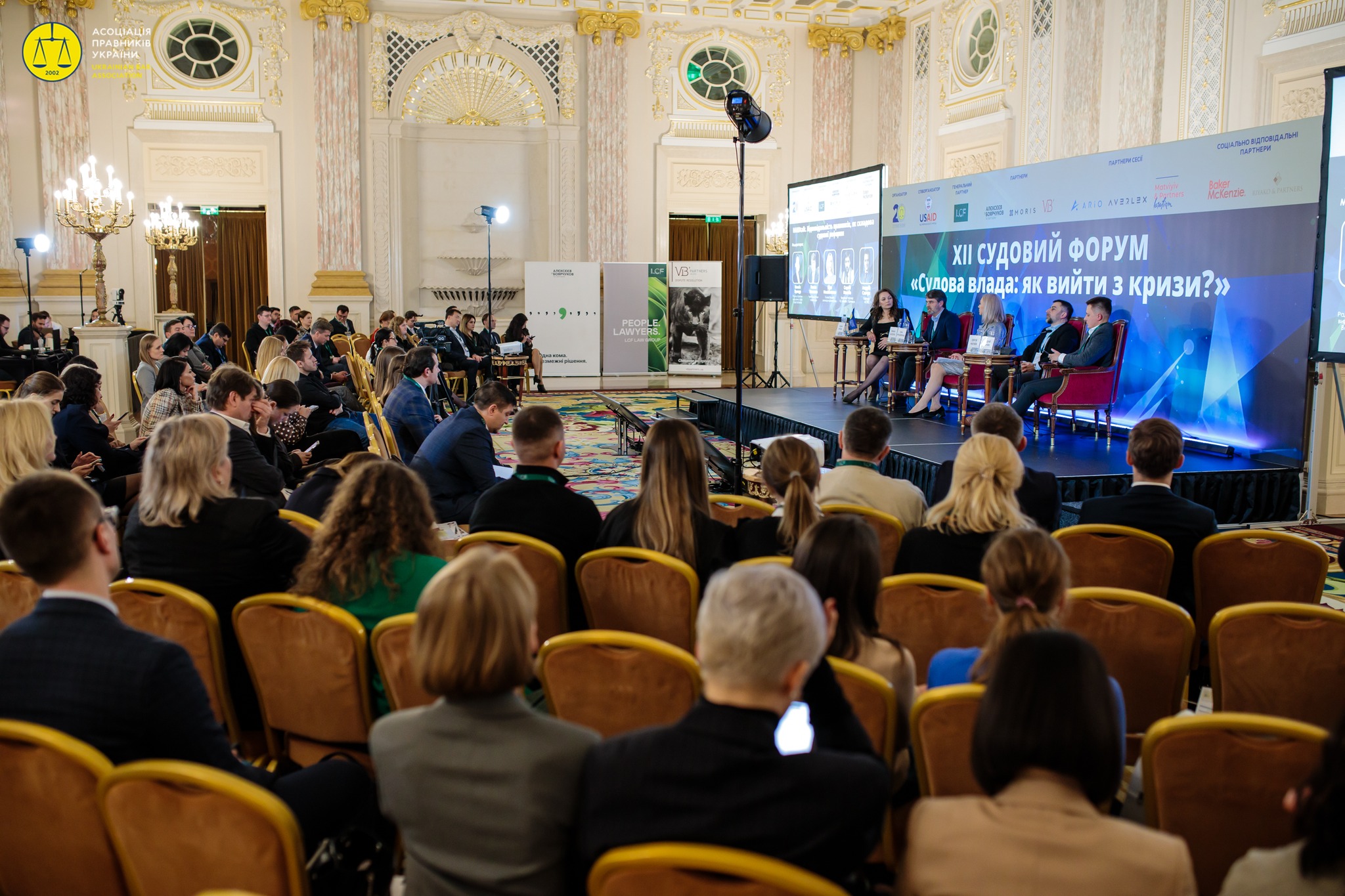
You can find more photos from the event at this link.
The Ukrainian Bar Association is grateful for the support in organizing the forum:
General Partner:
Partners:
Alekseev Boyarchukov & Partners
Session Partners:
Socially responsible partners:
